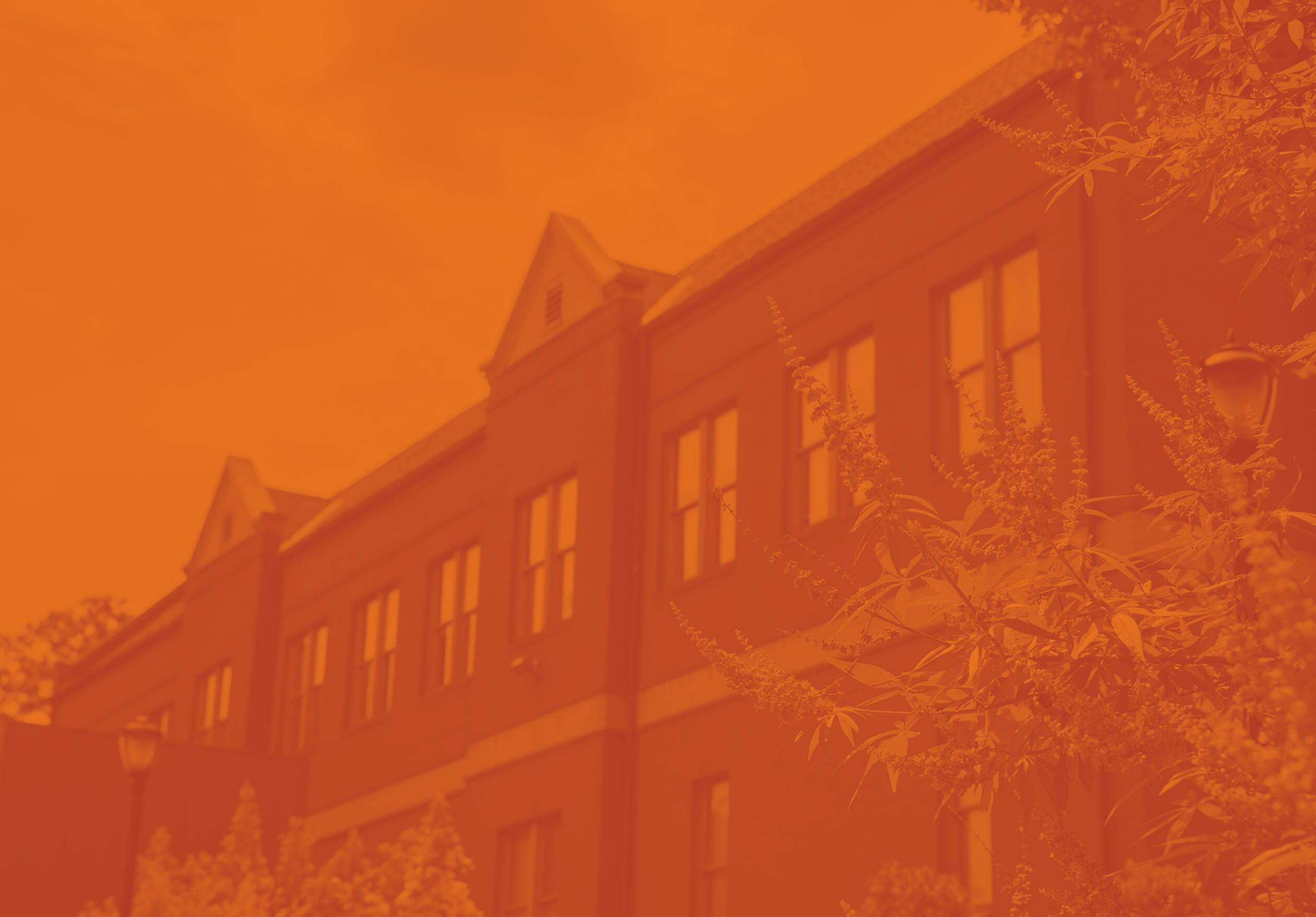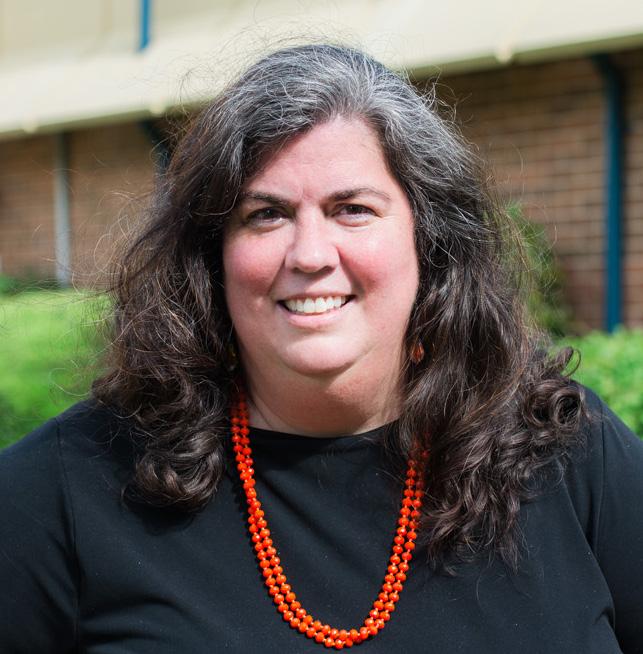


Feb. 1–28, 2023





Feb. 1–28, 2023

Doctor of Education Programs
Curriculum Studies hybrid Educational Leadership hybrid
Education Specialist Programs

Teaching and Learning online Instructional Technology online Reading Education online School Psychology
Master of Education Programs Counselor Education Curriculum and Instruction –Accomplished Teaching online Educational Leadership online Elementary Education online Evaluation, Assessment, Research and Learning online
Higher Education Administration online / hybrid Instructional Technology online Middle Grades Education online Reading Education online Secondary Education online Special Education online Teaching Culturally and Linguistically Diverse Students online
Master of Arts in Teaching Programs
Elementary Education online Health and Physical Education online
Middle Grades Education online P-12 Spanish Education Secondary Education online Special Education online
Certificate Programs Applied Research and Evaluation online Educational Leadership Tier I online Instructional Technology online School Library Media online
English for Speakers of Other Languages (ESOL) online
Online Teaching and Learning online Reading online
Teacher Leadership online Gifted In-Field online
English for Speakers of Other Languages (ESOL) online
The COLLEGE OF EDUCATION at Georgia Southern University offers a wide-range of highquality, innovative master’s, specialist’s and doctoral degree programs as well as endorsements and certificates.
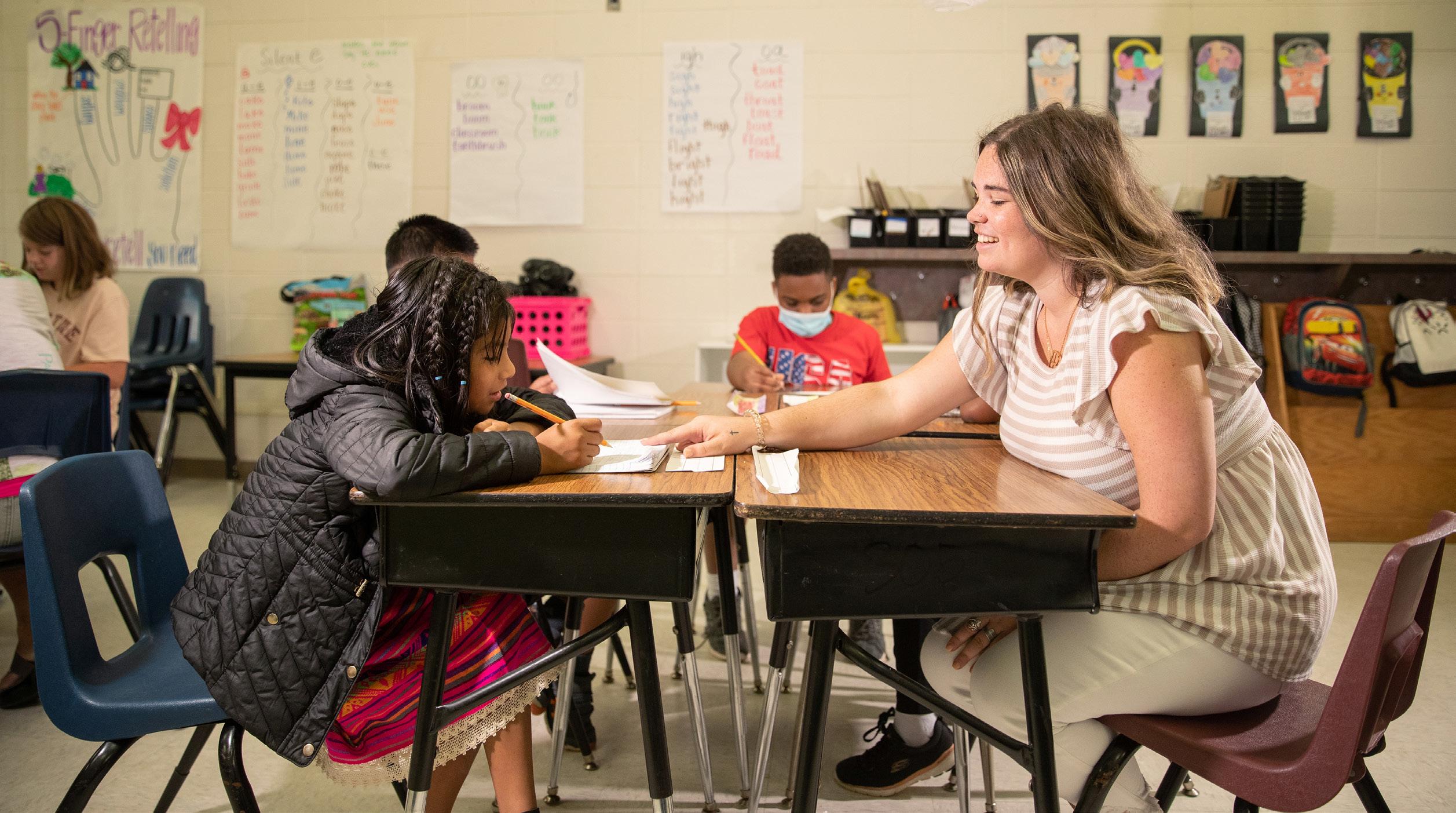
Designed to accommodate busy, working professionals, many programs are available online. The college’s offerings are ranked in the top tier of U.S. News & World Report’s “Best Online Graduate Education Programs.”
COE.GeorgiaSouthern.edu




Hall of Famers, field goals, touchdowns and a curriculum that highlights the 95k square foot shrine to college football. Teachers, tour operators, and all groups, plan your visit and enjoy over 50 interactive exhibits and a 45 yard indoor playing field. Your group will enjoy an action-packed, multimedia experience and they will leave educated, inspired, and entertained. Book your outing today! cfbhall.com/groups
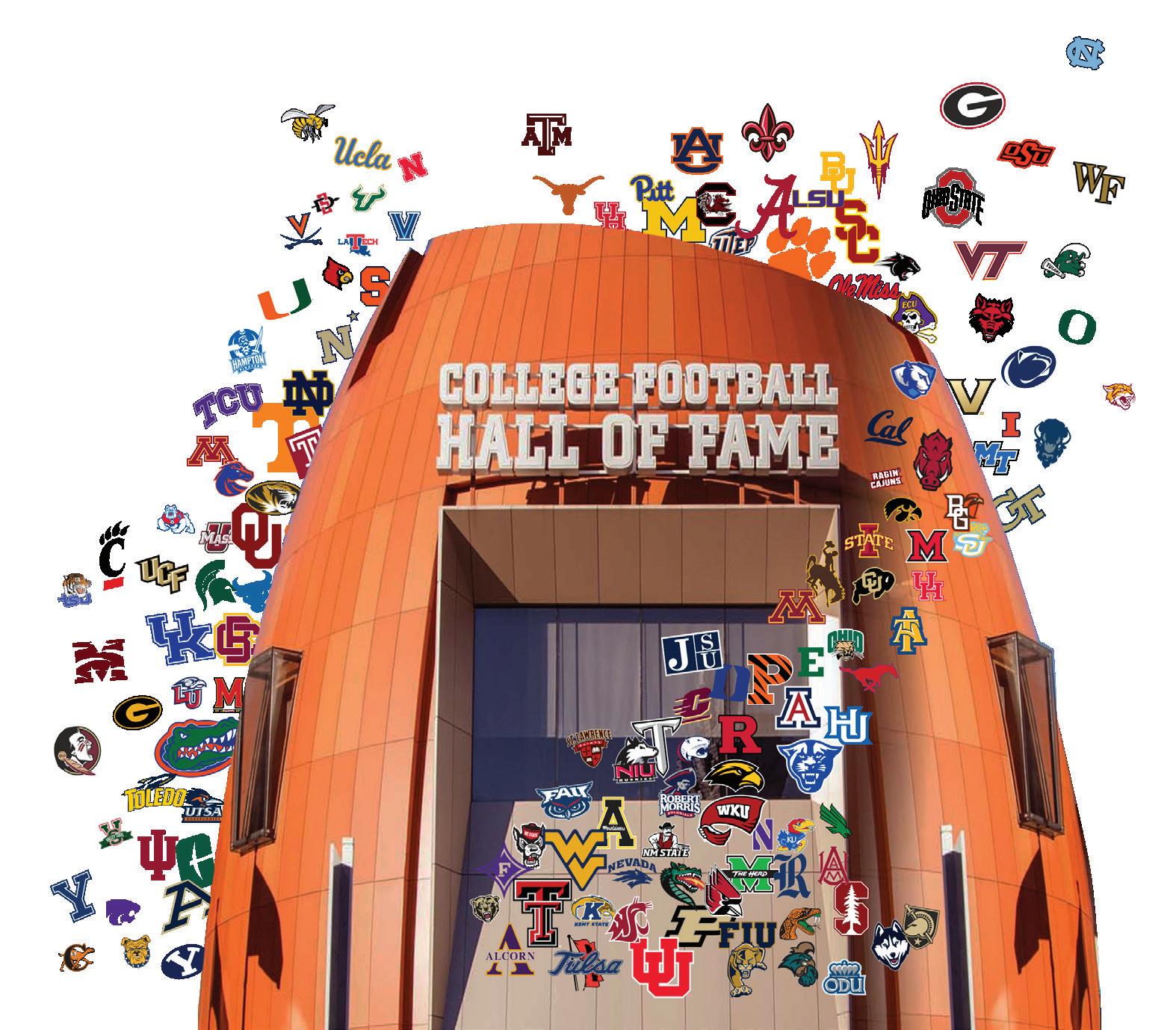





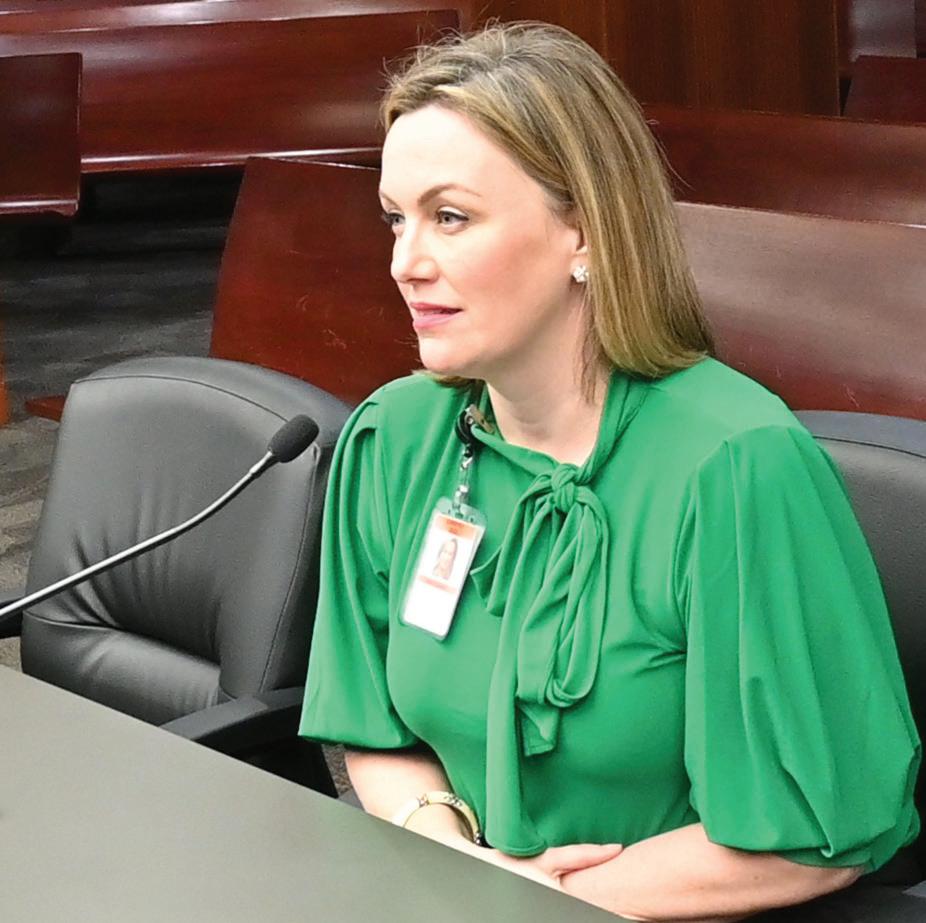

Vol. 44 No. 1
As the largest independent educator association in the state and nation, the Professional Association of Georgia Educators (PAGE) exists to support our members who serve in every Georgia public school. PAGE provides unparalleled legal coverage, legislative advocacy, professional learning, grants, and scholarships. PAGE honors and encourages educational excellence through student programs including Student Teacher Achievement Recognition (STAR), Future Georgia Educators (FGE), Georgia Academic Decathlon (GAD), and PAGE Academic Bowl for Middle Grades.

Growth: How glorious and essential it is. Though often associated with a certain season of the calendar or a specific stage of life or career, growth is always possible and perennially beautiful — in winter as in spring, in youth as in later years, as a new teacher and as a more experienced educator.

In this issue, PAGE One explores the multi-faceted growth that arises from one of the most rewarding relationships within the teaching profession — mentorship. When one educator mentors another, both benefit. Whether new to teaching or new to a school or system, mentees progress in knowledge and ability. For veteran educators, mentoring brings great potential to expand and refresh. These mutually beneficial relationships provide growth through caring. As expressed by one teacher featured in this issue’s cover story, “we have to take care of each other if we’re going to be able to continue to give.” Wherever you are in your journey as an educator, you’ll find much encouragement as PAGE members throughout Georgia speak to the incredible transformative power of mentorship (pages 24 through 39).
Each year, PAGE provides members with opportunities for growth and career advancement in the form of scholarships. To date, the PAGE Foundation has awarded more than $600,000 in tuition assistance to Georgia educators and support personnel pursuing higher degrees, and to high school and college students seeking to enter the profession. On pages 14 through 21, a few recent winners reflect on where they were in their career trajectory when they received a PAGE scholarship and where they are now. On page 22, you’ll find the information you need to apply for a PAGE scholarship this calendar year, as well as how to apply for a PAGE Educator Grant.
PAGE advocacy to the 2023 Georgia General Assembly is well underway. To learn more about the memberdeveloped priorities guiding this work, as well as PAGE legislative reporting, webinars, and member advocacy opportunities, turn to pages 44 through 51.
Throughout your career as a Georgia educator, PAGE is here for you. In seasons of both growth and
challenge, it is our privilege to serve you as you serve others.
Thank you for all you do.

Ramona Mills Executive Editor
In this issue, PAGE One explores the multi-faceted growth that arises from one of the most rewarding relationships within the teaching profession mentorship. When one educator mentors another, both benefit.
My mother always told me, “you’re never too old to learn.” I carry this wisdom with me every day as I consider the learning taking place within the many mentor / mentee relationships at the elementary school in which I currently serve as principal.
This learning is multi-faceted — with a breadth and depth that exceeds the sharing of information and resources related to such topics as classroom management and student engagement. As essential as these topics are — and as beneficial the mentor / mentee relationship is in such critical
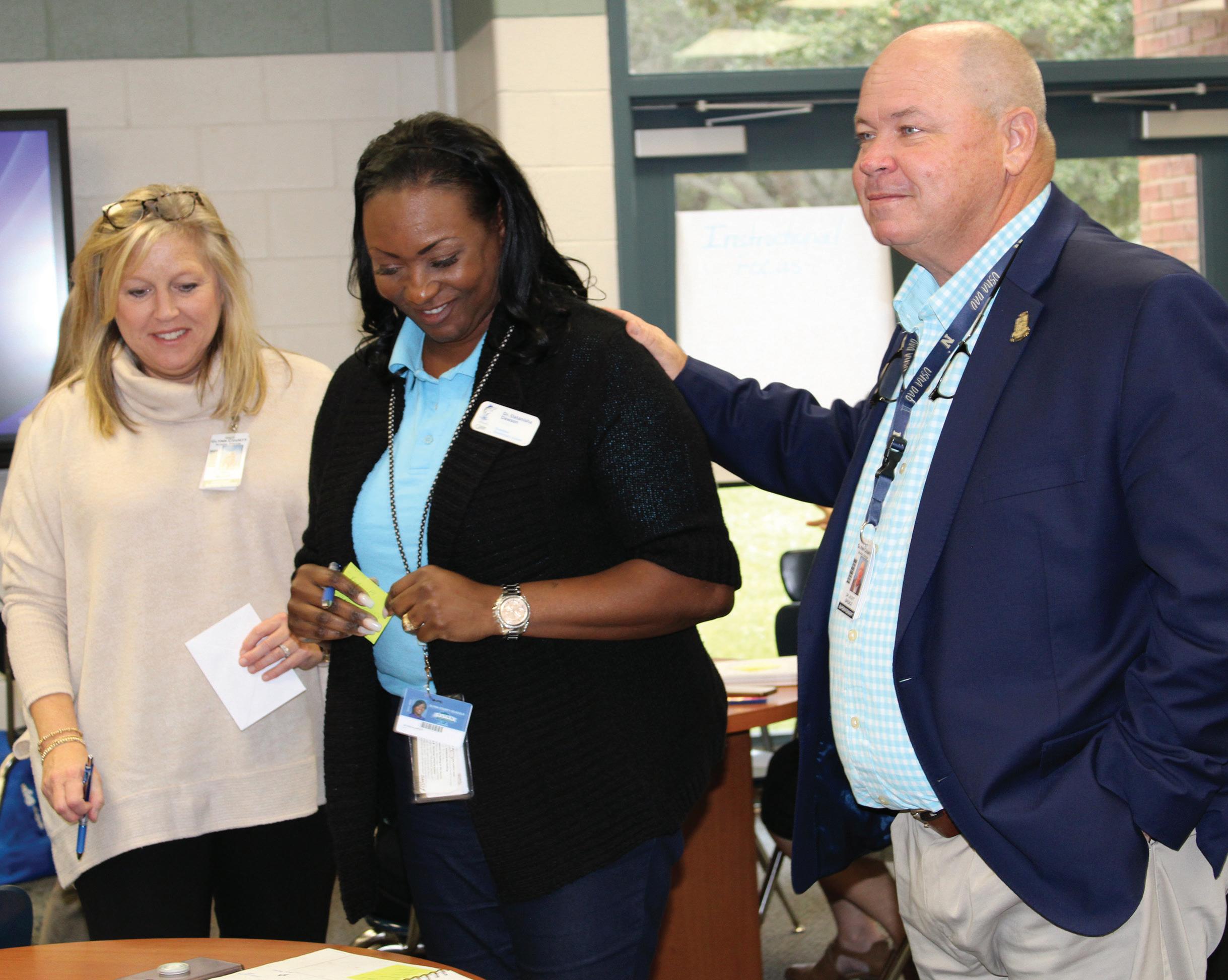
“Daily, we are challenged with the dual needs to acquire knowledge and nurture relationships with people … Both are equally essential to success in the profession.”
areas — it is not the sharing of knowledge alone that defines this incredibly symbiotic partnership. The soft skills inherent in the relationship yield exceptional benefits as well.
When I reflect on my entrance to the profession 23 years ago, I realize how providence placed me in just the right situation to enhance both knowledge and soft skills. As a paraprofessional, I shared workspace with the assistant principal. As a result, my days were filled with observations of instructional and operational decision-making conversations as well as careful analyses of an abundance of student data. All the while, there were the functional responsibilities of the work — secretarial tasks and classroom / cafeteria duties. For two years, I benefited from this informal apprenticeship that was the foundation for my professional growth to become the leader I am today. That assistant principal, now my superintendent, had an eye for recognizing potential talent and developing that talent through a combination of knowledge-based growth and soft-skill enhancement.
Now, I do my best to follow this model within the mentorship programs at Goodyear Elementary. As a result, I have been privileged to hear the testimonies of teachers sharing how their mentors’ guidance in the acquisition and refinement of both professional knowledge and soft skills has tremendously improved their planning, teaching, and even their relationships with students. This is especially evident with teachers in their first year in the classroom as they acclimate to managing the myriad tasks and responsibilities to be a successful educator. A new teacher recently shared that after meeting with her mentor, she found a more efficient method to retrieve digital resources while lesson planning. She credited this one brief conversation with cutting more than half the time out of her work in designing her lessons.
In another instance, an early career educator new to Georgia entered our school with some experience working in a
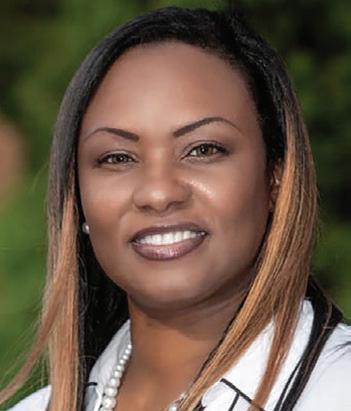
high-needs school similar to our own. Still, she encountered some difficulties in adapting to her new classroom and role.
After weeks of unsuccessfully trying self-taught strategies to meet her students’ needs, the teacher shared her challenges with her mentor who provided the blend of knowledge and soft skills necessary to help the mentee adapt her teaching methods to include silent cues, private packs, and other non-verbal messages to communicate effectively with her students. Because the teacher and her mentor were both committed to working together over time, she was able to learn, implement, and adjust with ongoing guidance. This interchange of support was appreciated by and rewarding to both the teacher and her mentor.
The potential for learning and growing is, of course, boundless. I often realize while in conversation with veteran and early career educators that they are teaching me. I let them know that they’ve helped me understand something or to look at an issue in a new way.

Daily, we are challenged with the dual needs to acquire knowledge and nurture relationships with people. It is tempting to prioritize the first and eventually get to the second. But, both are equally essential to success in the profession, and both can be acquired simultaneously.
Just like mom told me, in mentoring relationships as in life, you’re never too old to learn.
“I have been privileged to hear the testimonies of teachers sharing how their mentors’ guidance in the acquisition and refinement of both professional knowledge and soft skills has tremendously improved their planning, teaching, and even their relationships with students.”
From
the Foundation President
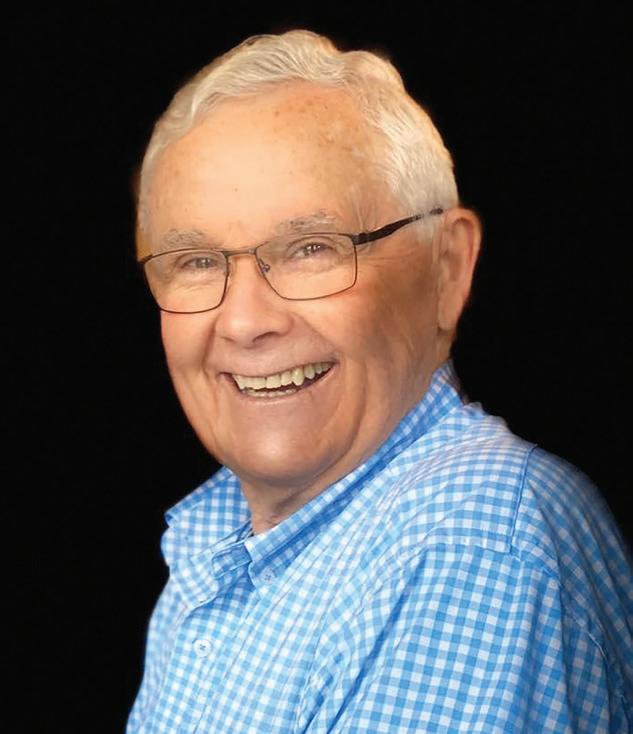
Witnessing Dr. Noris Price — Superintendent of the Baldwin County School District and the 2022 Georgia Superintendent of the Year — stand on a stage in Nashville, Tennessee, this past February as a National Superintendent of the Year finalist was the best way possible for me to close the book on 39 years in public education. I had supported her as mentor and coach for seven years while serving as executive director of Oconee RESA. Feelings of pride and fulfillment filled my heart as she received well-deserved recognition for her leadership.
The event caused me to reflect on the value and importance of coaching and mentorship. When I entered educational administration in 1987 in Jenkins County after having taught high school special education and Related Vocational Instruction for four years, I was excited about filling the newly created position of elementary/middle school assistant principal. That excitement quickly turned to apprehension, however, when the new superintendent, Dr. James Lynn Batten, asked me to become the principal of the PK-2 primary school due to a retirement.

Overnight, my life was forever changed. Leaving behind my small group of 18 high school special needs students, I walked out of my classroom into a school of 70-plus educators and 650 students. Further, I would have no assistant principal or school counselor on staff. I had no formal experience as a school leader, and had only taught for four years. I would be leading teachers with more than 20 years of experience. My mind was flooded with many thoughts and emotions as I reflected on my new assignment.
Because of the excellent mentoring I had received, I embraced my next leadership opportunity with confidence as I served in the dual roles of RiverQuest GNETS and HiTech Alternative Education Director.
Superintendent, mentor, and coach, Dr. James Lynn Batten, (above left) one of Dr. Hayward Cordy’s key mentors. Coaching, Dr. Cordy says, was key to his development as a first-year principal (above right).
—Timothy
Criteria for
"It all started with mentorship. Dr. Batten saw me not as I was ... but as the servant leader that I could and would be.”
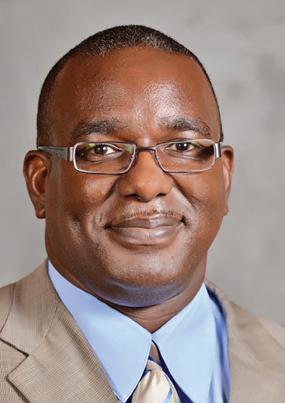
After five years, I returned to Jenkins County as superintendent of schools, the district which launched my career. Six years later, I returned to my home community in Johnson County and served successfully as superintendent of schools there. Then, for the past 11 years, I was honored to lead Oconee RESA and support all of the educators and leaders in the affiliated districts.
It all started with mentorship. Dr. Batten saw me not as I was — a young teacher with no formal leadership experience — but as the servant leader that I could and would be. He took the time to pour into me the skills and mindset I would need to succeed. That is the essence of mentoring. In turn, I followed his example and coached many students, teachers,
and leaders throughout my career. Being present as Dr. Price was recognized as 2022 Georgia Superintendent of the Year and National Superintendent of the Year finalist after I had provided coaching support to her was a fitting conclusion to my K-12 career.
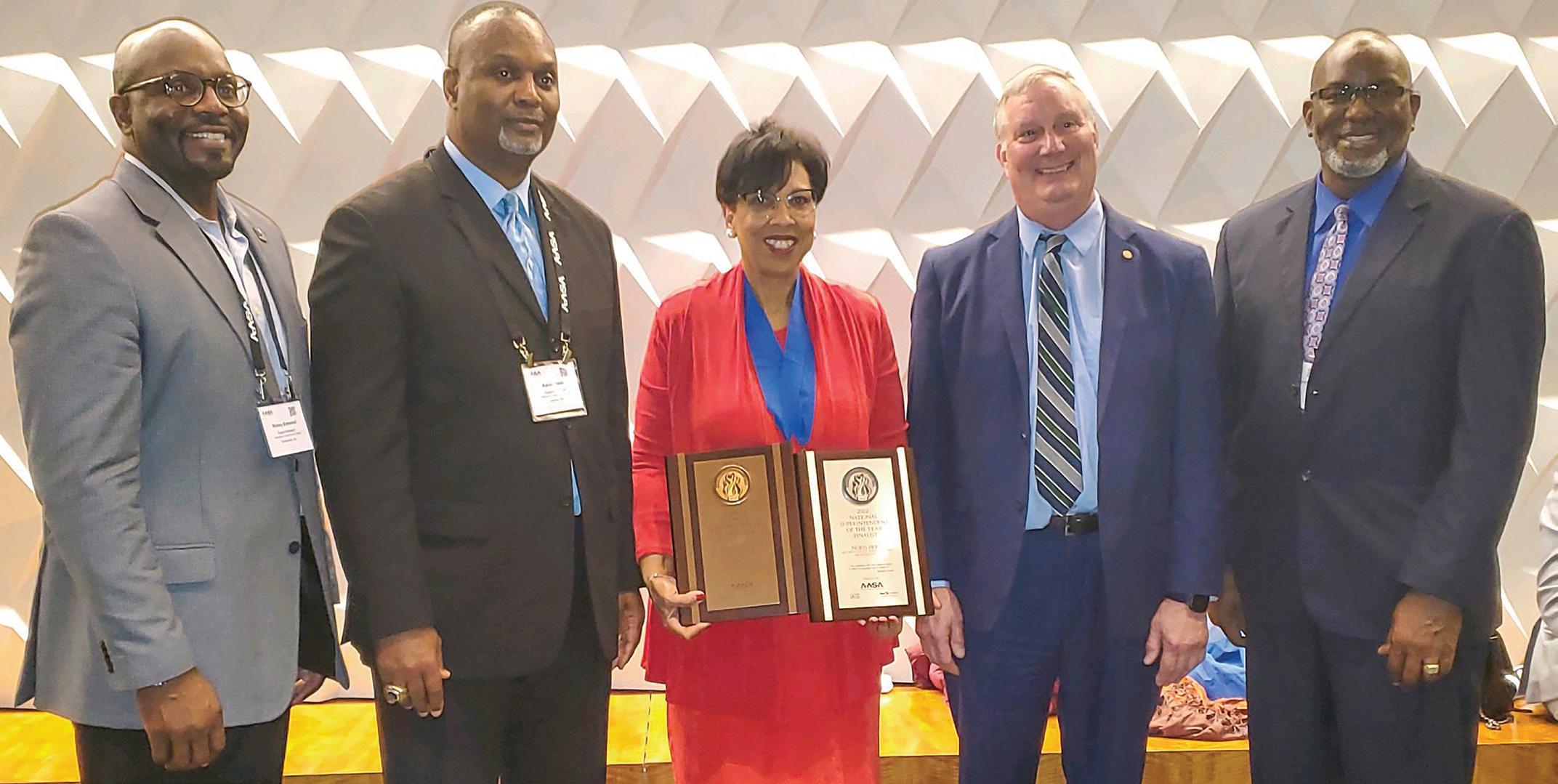
Coaching is vital for professional growth for all educators, from the novice to the experienced. My career was made possible by the mentoring that developed the leader within me.
Foundation President Hayward Cordy joined PAGE on a full-time basis in 2022 after 39 years in Georgia public school leadership positions and serving 20 years as a PAGE Board Director, including one term as Board President. A published author and presenter on mitigating the impact of childhood poverty, Cordy holds a doctorate in Educational Leadership from Georgia Southern University.

• Wondering who to reach out to when you have questions about your PAGE membership?
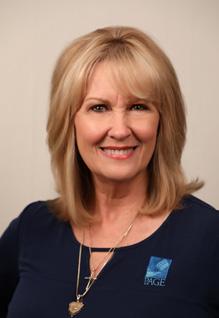
• Have an issue or concern that you need to bring to PAGE’s attention — but aren’t sure what department or staff member to contact?
• Interested in scheduling a Code of Ethics presentation at your school or district office?

• Looking for information about a Future Georgia Educators (FGE) program or event?
•
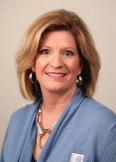

The PAGE Foundation is dedicated to promoting excellence in Georgia’s public schools by investing in educators and enhancing the overall teaching profession.
Each year, the PAGE Foundation awards scholarships to members seeking to further their education. To date, the Foundation has invested more than $600,000 in the form of financial assistance to current Georgia educators and support personnel who want to pursue higher degrees and certifications to advance their careers, as well as to high school and college students who want to enter the teaching profession.
Certified educator scholarship recipients are chosen based on their academic performance and service to public education, as well as two written essays. Awards, which vary in amount according to the specific scholarship awarded, are payable to the recipient’s college or university.
Recipients must be current PAGE members, have a 3.0 or higher GPA, and agree to teach in Georgia for three years. Funds can be used to pursue graduate degrees in education or a specific content area or for a new certification or endorsement. They can also be used for required coursework to enhance a teacher’s qualifications.
Some scholarships are specifically for parapros, support personnel, or college students who have been accepted into an education program. Others are available to high school seniors planning to pursue a career in teaching.
PAGE One spoke with some recent winners about where they were in their career trajectory when they applied for the scholarship and where they are now. We wanted to know if / how receiving a PAGE Foundation scholarship has positively contributed to their long-term professional goals. Here’s what they told us …
In 2018, SeTia Freeman decided to go back to school to earn her master’s degree. A seasoned teacher, she knew a master’s degree would open even more doors.
“At that time, I knew I wanted to transition out of teaching and into another role as an educator, but all of these additional roles were off limits to me without a master’s degree,” said Freeman.
Freeman was accepted into the graduate program at Kennesaw State University and was discussing the decision — and how to pay for it — with her PAGE membership services representative one day at school.
“I ended up sharing my story and she convinced me to apply for the scholarship,” Freeman said.
Freeman applied and was awarded the PAGE Professional Scholarship, which she said covered over half her tuition for one semester.
“It made a huge difference,” she said. “I earned my master’s degree in the summer of 2019, worked another school year, and then was promoted to an instructional coaching job. Having a scholarship that allowed me to continue my education and ultimately earn a degree absolutely contributed to the fact that I was able to get the position I had wanted for several years.”
Freeman didn’t stop there. She continued her journey and enrolled in the instructional
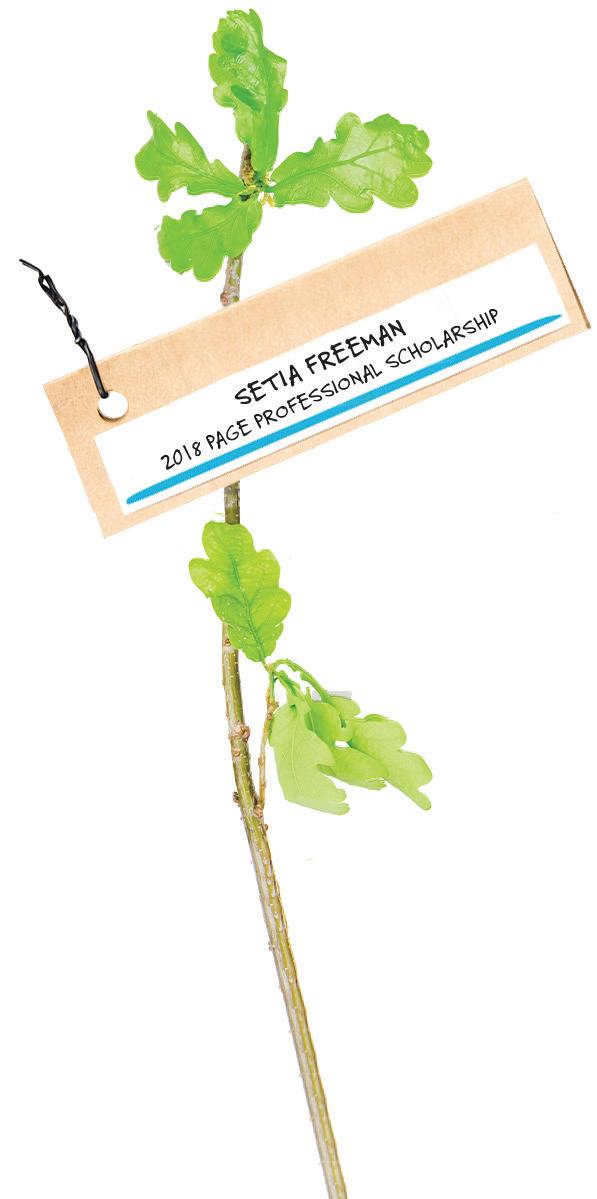
technology program for her specialist degree. Once she finished that program, she set her sights on obtaining her leadership certification.
At this point, Freeman had been going to school for many years and was experiencing what she describes as “financial fatigue.” She applied for another PAGE scholarship and was awarded a second Professional Scholarship in 2021 to complete her leadership certification at Kennesaw State University. Again, the scholarship covered over half her tuition for the semester.

Shortly after she completed the coursework in 2022, she landed a job as assistant principal at Pate’s Creek Elementary School in Henry County.
“Having that extra boost from PAGE allowed me to complete that program and led to my current position,” said Freeman. “When I think of the forward trajectory of my career, I can absolutely say that PAGE contributed to that. Yes, I put the hard work in, but having some financial backing for a working adult, that makes a huge difference.”
“Having a scholarship that allowed me to continue my education and ultimately earn a degree absolutely contributed to the fact that I was able to get the position I had wanted for several years.”
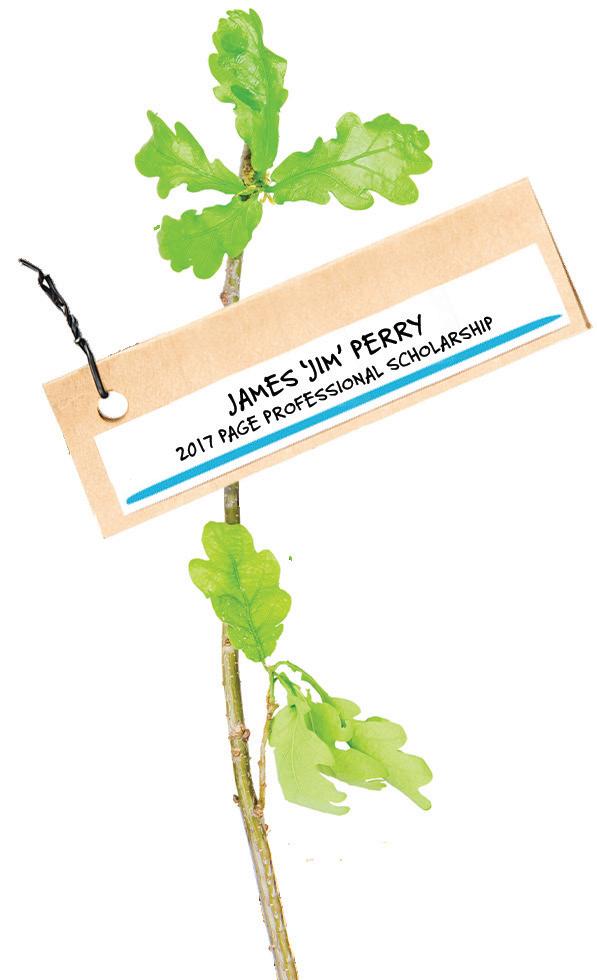
a teacher, you’re not very high on the pay scale.
(The PAGE scholarship) certainly helps.”
Jim Perry is in his 10th year of teaching middle school band and his seventh year as band director at Appling County Middle School. He was at Appling County when he won the PAGE Professional Scholarship in 2017.
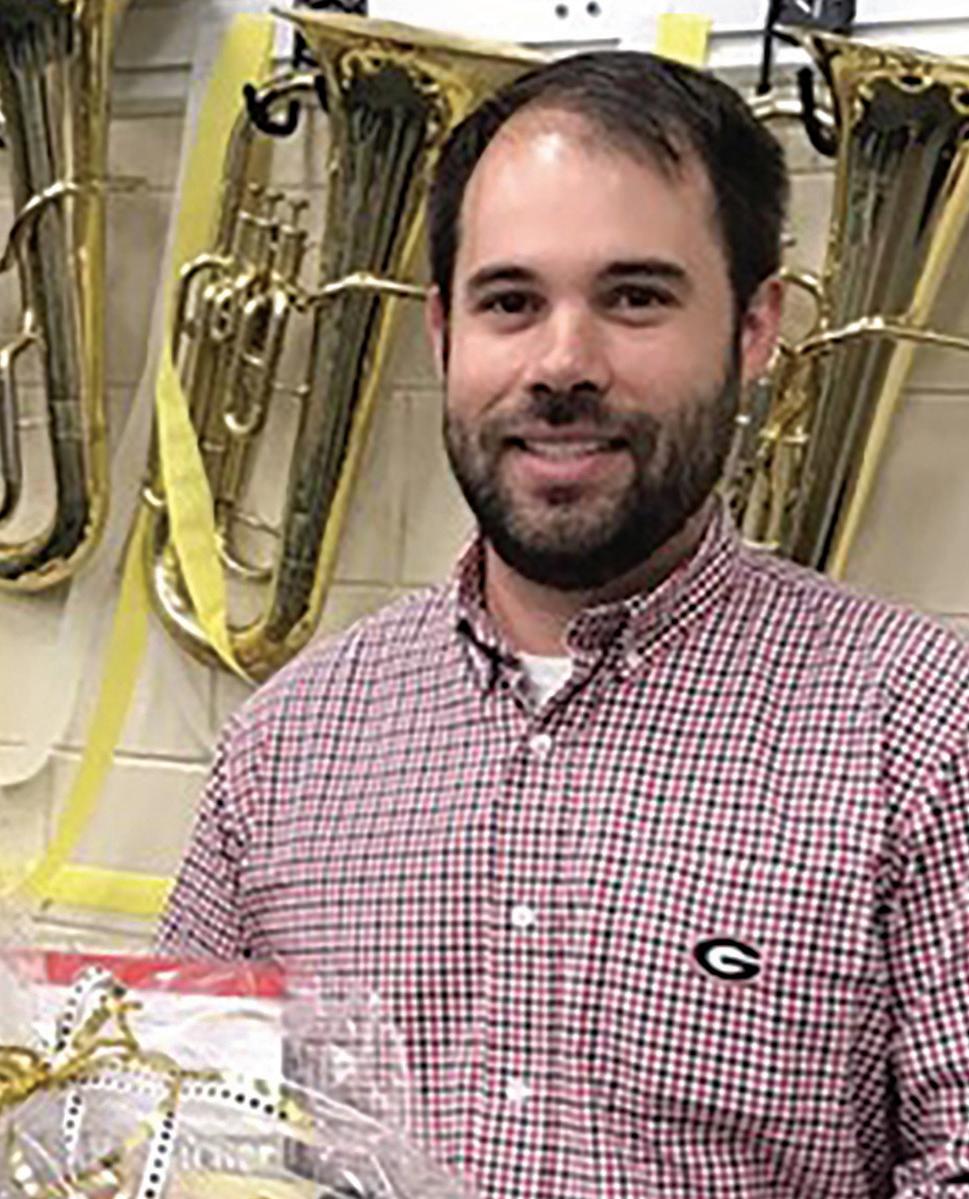
“I was interested in furthering my education and was working on a master’s degree at the time. I’ve always wanted to continue my degree,” he said. “I’m still hitting the books.”
Perry, who earned his master’s degree in music education in 2018 from Anderson University in South Carolina, is now working on his specialist degree in music education at Piedmont University.
Perry earned his bachelor’s degree in music education from the University of Georgia. While at UGA, he marched in the Redcoat Marching Band and served two years as Drum Major. Though his primary instrument is tuba, Perry said he can play a little bit of everything.
“I grew up playing tuba and I still play it when I can, but I end up playing a little of everything with students during the day. I can play all of them enough for beginners,” he said. “You would be surprised how much commonality there is with the instruments. And after 10 years, you get better.”
Once Perry earns his specialist degree, he isn’t sure if he will continue on to earn his doctorate and move into leadership or stay in the band room. He plans to take a break from being a student for a while until he decides his next move.
“With higher education, I was looking to enhance my pedagogical approaches and increase my knowledge of the instruments. It’s been interesting. Both Anderson and Piedmont are very research-driven. It has opened my eyes to different research-backed techniques and enhanced my own teaching ability,” Perry said.
Perry said he was grateful to receive the PAGE scholarship when he did.
“As a teacher, you’re not very high on the pay scale. (The PAGE scholarship) certainly helps.”
“As
Parker Matre received her PAGE Future Georgia Educator (FGE) Scholarship in May of 2020, just after graduating from Lee County High School in Leesburg, Georgia.

“I had already been accepted to Georgia Southwestern State University in Americus and had applied for lots of scholarships,” said Matre. “My high school pathway teacher encouraged me to apply for the PAGE scholarship, so I did. I was looking for as much financial assistance as possible.”
Matre is now a junior at Georgia Southwestern and plans to start her student teaching next fall. She’s majoring in elementary education, but she isn’t sure yet which grade level she wants to teach.
“I’m leaning towards the upper grades, maybe third, fourth or fifth,” she said. “Elementary school kids — especially the younger ones — are so innocent and optimistic in their outlook on life. They want to learn. Though it may not look like it every day, they do. It’s such a fun age. They still want to talk to you and be your friend. They’re not too cool for you.”
Matre said she started thinking about becoming a teacher when she was in middle school, but it wasn’t until she started taking the Teaching as a Profession Pathway courses in high school that she knew for sure she was meant to teach.
“By my senior year, I was going to the second grade classroom in our district weekly and I really enjoyed it,” she said. “That really solidified my decision.”
As for the PAGE scholarship, Matre said she’s grateful for the assistance.
“It’s hard to be a college student with work, bills, all of it. Financial aid just doesn’t cover enough. (The PAGE scholarship) is very appreciated.”

“It’s hard to be a college student with work, bills, all of it. (The PAGE scholarship) is very appreciated.”
When Kislyn Lewis won the PAGE Support Personnel Scholarship in 2017, she was a kindergarten parapro at Haynie Elementary School in Clayton County. She used the scholarship to help pay for her master’s degree in early childhood education from Grand Canyon University.
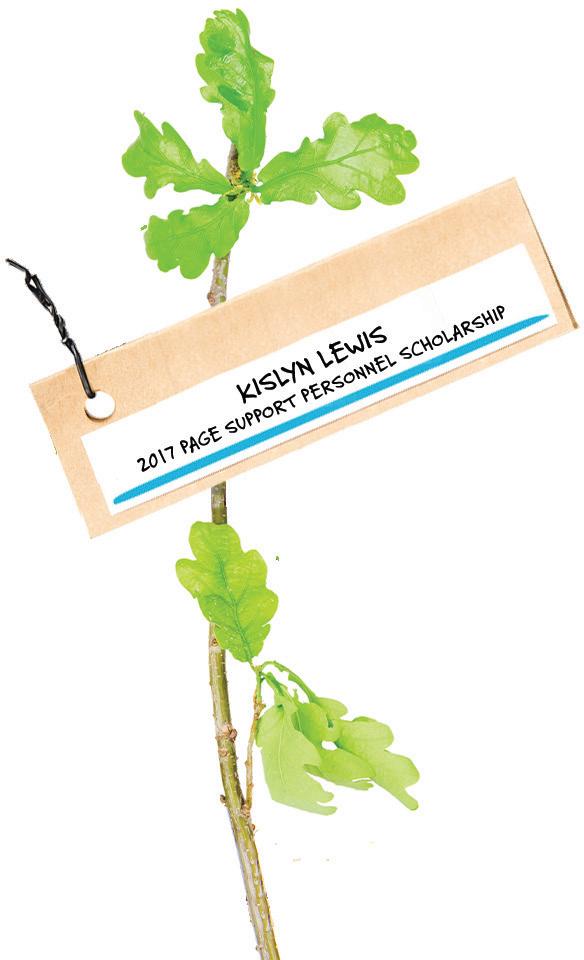
Today, Lewis is a kindergarten teacher and grade level chair at Northcutt Elementary School.
Prior to becoming a parapro, Lewis worked in Social/Human Services for 20 years. She graduated with a bachelor’s degree in psychology and a master’s in public administration from Albany State University. When her company downsized, she was forced into a career change and became a parapro. It was during this time that she realized her love for teaching.
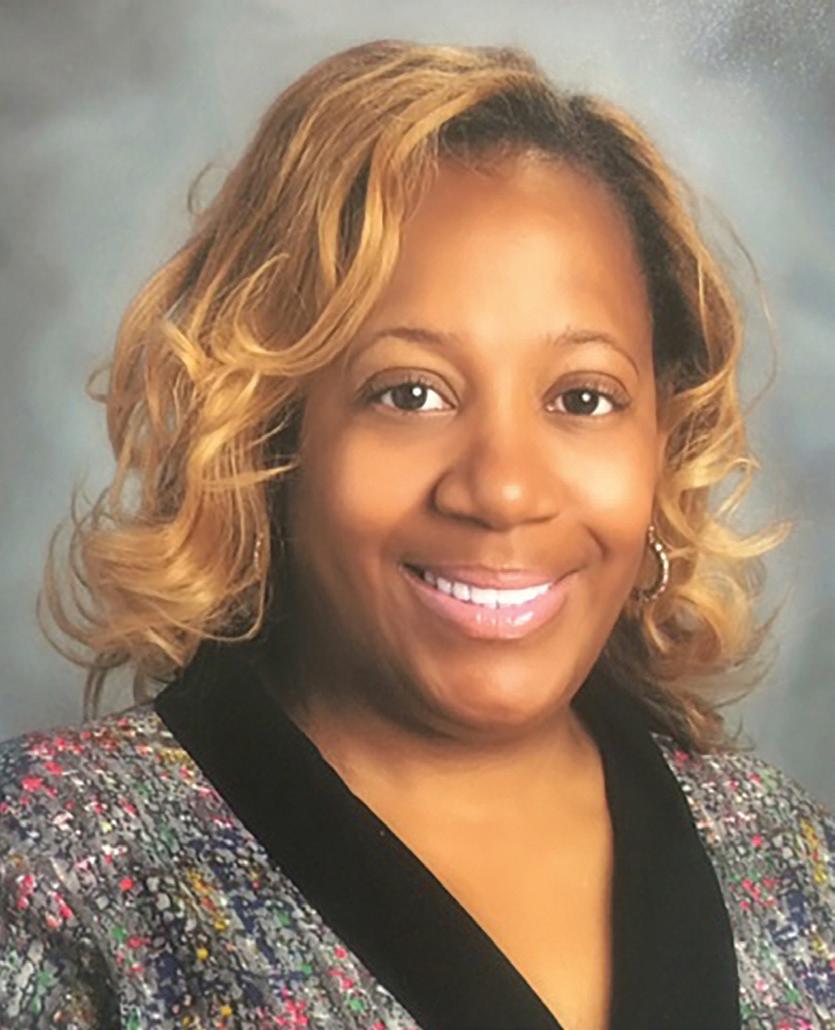
Lewis, who taught kindergarten as a parapro for three years, is now in her sixth year as a teacher.
“The PAGE scholarship helped me pay for my master’s degree. My department told me
I would have to pay out of pocket and it helped me cover some of those expenses,” she said. “It took me a while to finish. I had different obstacles in my own personal life and, of course, the pandemic, but I graduated in April of 2022.”
Though she loves teaching now, Lewis said that when she was younger, she would never have seen herself teaching kindergartners.
“I didn’t want to teach children. I had planned to be a social worker. But now, I love it,” she said. “Being an educator, I can provide a different type of guidance. You have to be strong. I’m a very emotional person when it comes to our families and these students.”
Lewis said she sees herself in the classroom for many more years to come.
“It’s the best job I’ve ever had,” she said. “I have a lot of friends who are seasoned teachers who say they are ready to retire, but I love this profession. It’s the only job I’ve ever had that even when I’m sick, I still want to go to work.”
“The PAGE scholarship helped me pay for my master’s degree.”
When Rachel Moss won her PAGE Support Personnel Scholarship in 2019, she was a parapro in Cherokee County. Moss served as a parapro for three years at Little River Elementary School and Mountain Road Elementary School — both in Woodstock — in an Emotional and Behavioral Disorders (EBD) classroom.
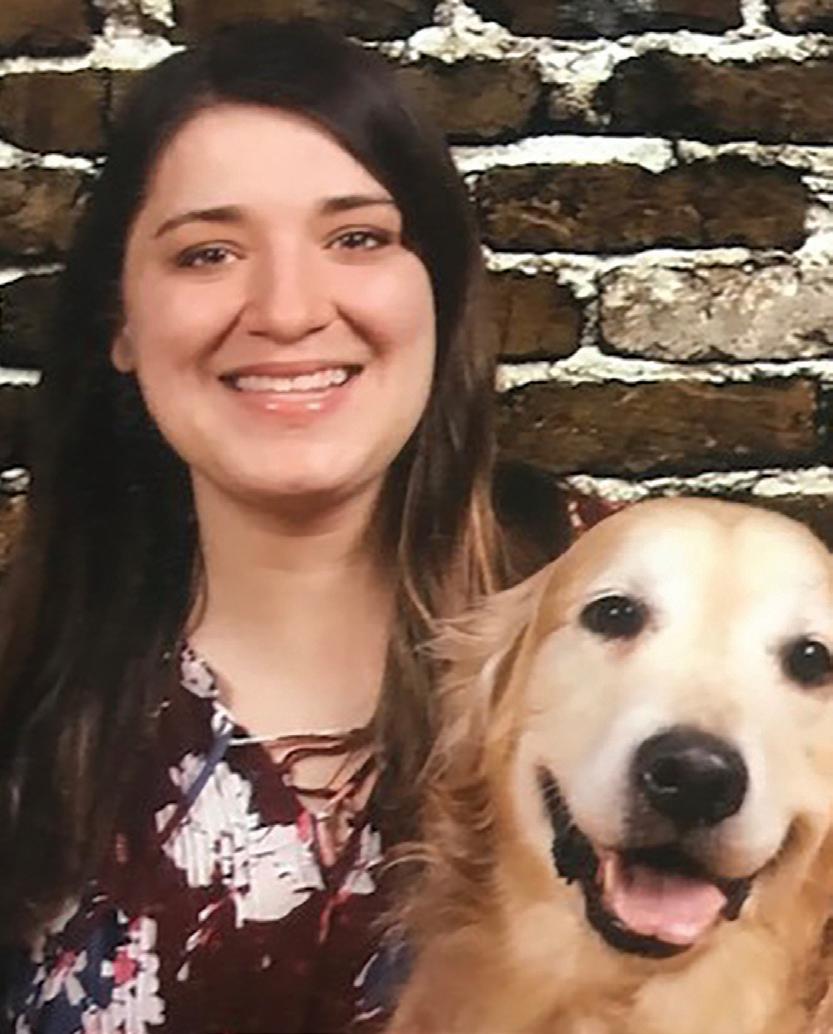
“I decided I wanted to be a teacher and wanted to go back and get my master’s degree,” Moss said.
Moss applied her PAGE scholarship towards tuition for her first semester of her master’s degree in special education at the University of West Georgia. She earned that degree two years ago, in 2020, and is now in her second year teaching special education at Arnold Mill Elementary School in Woodstock.
Currently, Moss teaches students in fourth and fifth grade who have been diagnosed with autism. She also teaches horseback riding lessons part time at a barn in Canton.
“Getting my master’s degree gave me that push,” said Moss. “Though the PAGE scholarship didn’t pay for all of my schooling, it was nice to be
recognized and appreciated. It also took off some of the total amount that I will have to start repaying this year.”
Moss, who has an undergraduate degree in psychology from Kennesaw State, said she was excited and engaged in her graduate program because the coursework directly applied to her career. She earned an “A” in every class. The program, which was online, allowed her to student teach at Mill Creek Middle School while she completed her degree.
“It was pretty cool because I knew most of the kids from Little River — they had moved up to middle school,” she said.
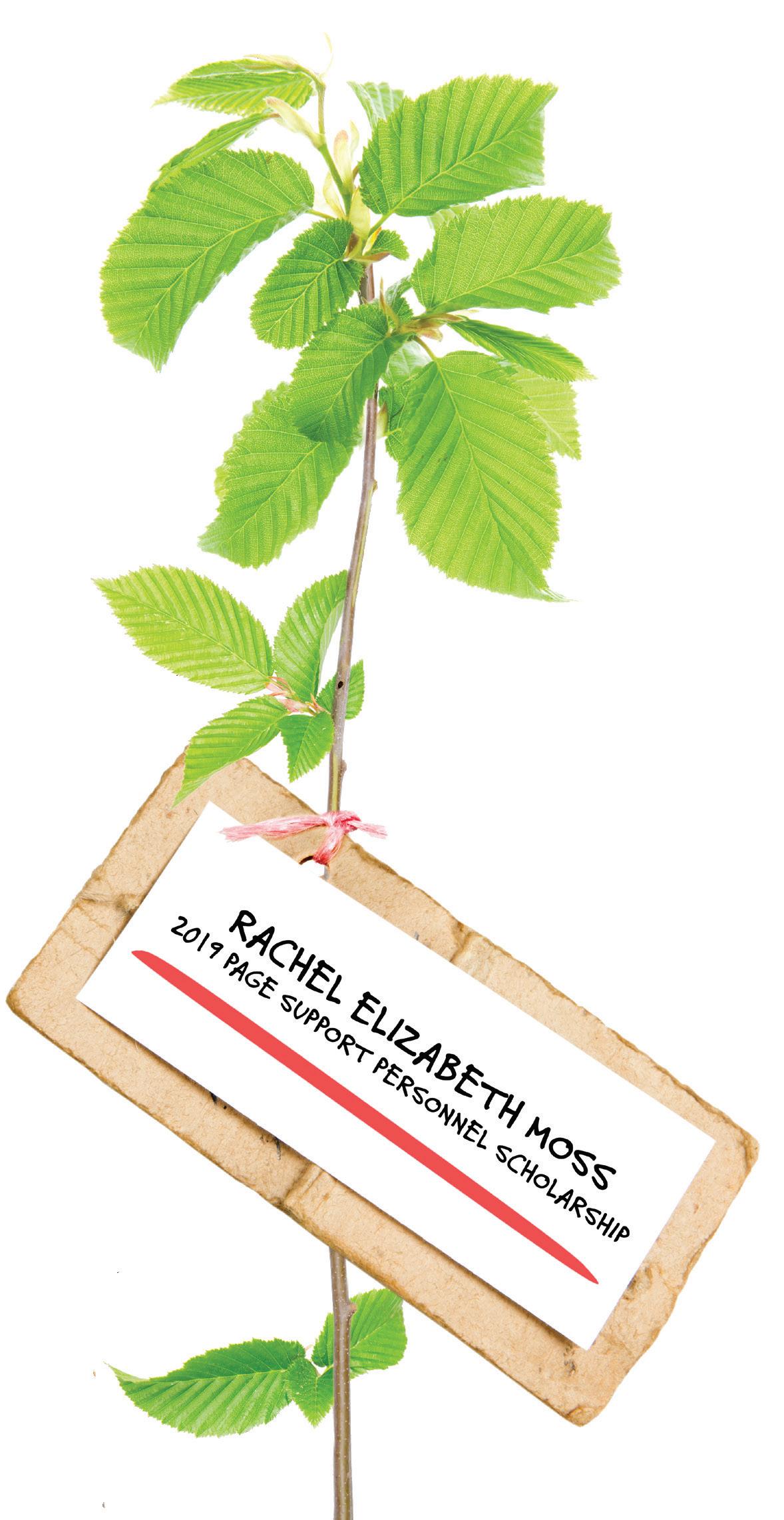
Moss loves her role now at Arnold Mill.
“I love my students. They are amazing,” she said. “I absolutely love the relationship I have with my kids. They keep me going in life.”
“Getting my master’s degree gave me that push. Though the PAGE scholarship didn’t pay for all of my schooling … it took off some of the total amount.”
Paul Harwart, a retired US Army veteran, is the senior army instructor of the JROTC program and department head of the Career Technology Department at Lakeview-Fort Oglethorpe High School in Catoosa County.
When Harwart received the PAGE Professional Scholarship in 2020, he already had an undergraduate degree from the University of Minnesota and three graduate degrees: a master’s in divinity from Trinity International Divinity School in Deerfield, Illinois; a Master of Strategic Studies from the Army War College; and a master’s of military strategy and science from the Command and General Staff College in Leavenworth, Kansas.
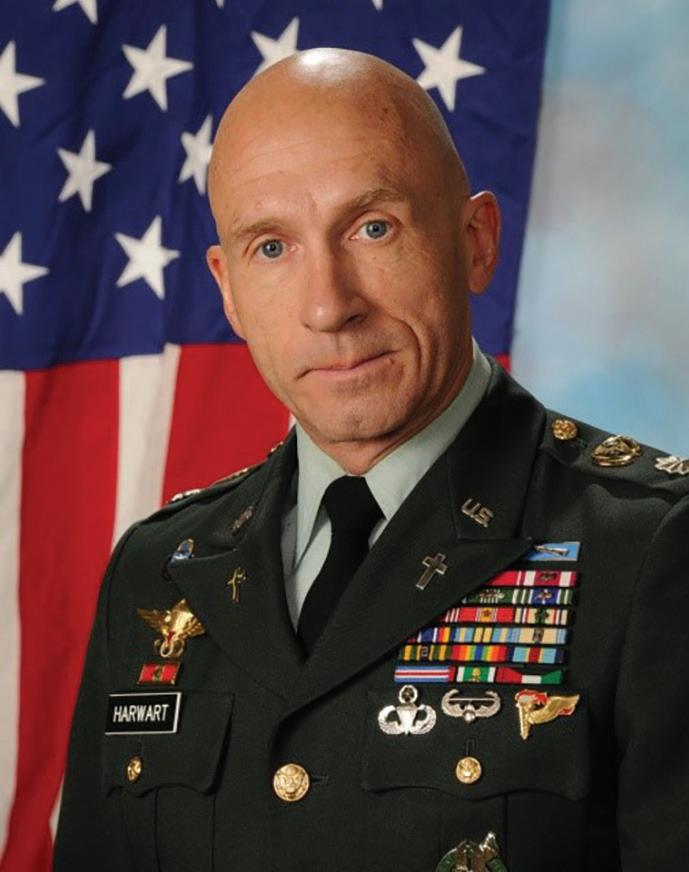
Despite all of these achievements, Harwart still wanted a degree in education.
“I had a lot of education, but I didn’t have a degree in education. Because I don’t come from an education background, I always felt like I kindof didn’t measure-up — even though I was a department head and had been teaching a long time,” said Harwart. “I felt like if I had the education degree, it would help promote my credibility.”
When Harwart won the PAGE scholarship, he was honored.

“For one, it was reaffirmation of my ability to write. Scholarships are competitive and you have to write an essay or two to apply,” Harwart said. “It also took some of the pressure off of having to pay out of pocket because my GI Bill had run out.”
Harwart used his scholarship towards completing his degree in education from Fort Hays State University in Kansas in 2021. He graduated with a grade point average of 4.0.
Today, Harwart has been teaching ROTC for 18 years, always at Lakeview-Fort Oglethorpe High School in Catoosa County. In 2019, he was named Georgia Association for Career and Technical Education Teacher of the Year.
“Everyone at my school has been very supportive. They have all cheered me on,” Harwart said. “PAGE has been very good to our school. They are very supportive. I’m a rep here at our school, and I tell all of our new teachers about PAGE. I share my story and tell them they should join. ‘Who knows,’ I tell them, ‘one day, you might even win a scholarship.’”
“I tell all of our new teachers about PAGE. I share my story and tell them they should join. ‘Who knows,’ I tell them, ‘one day, you might even win a scholarship.’”
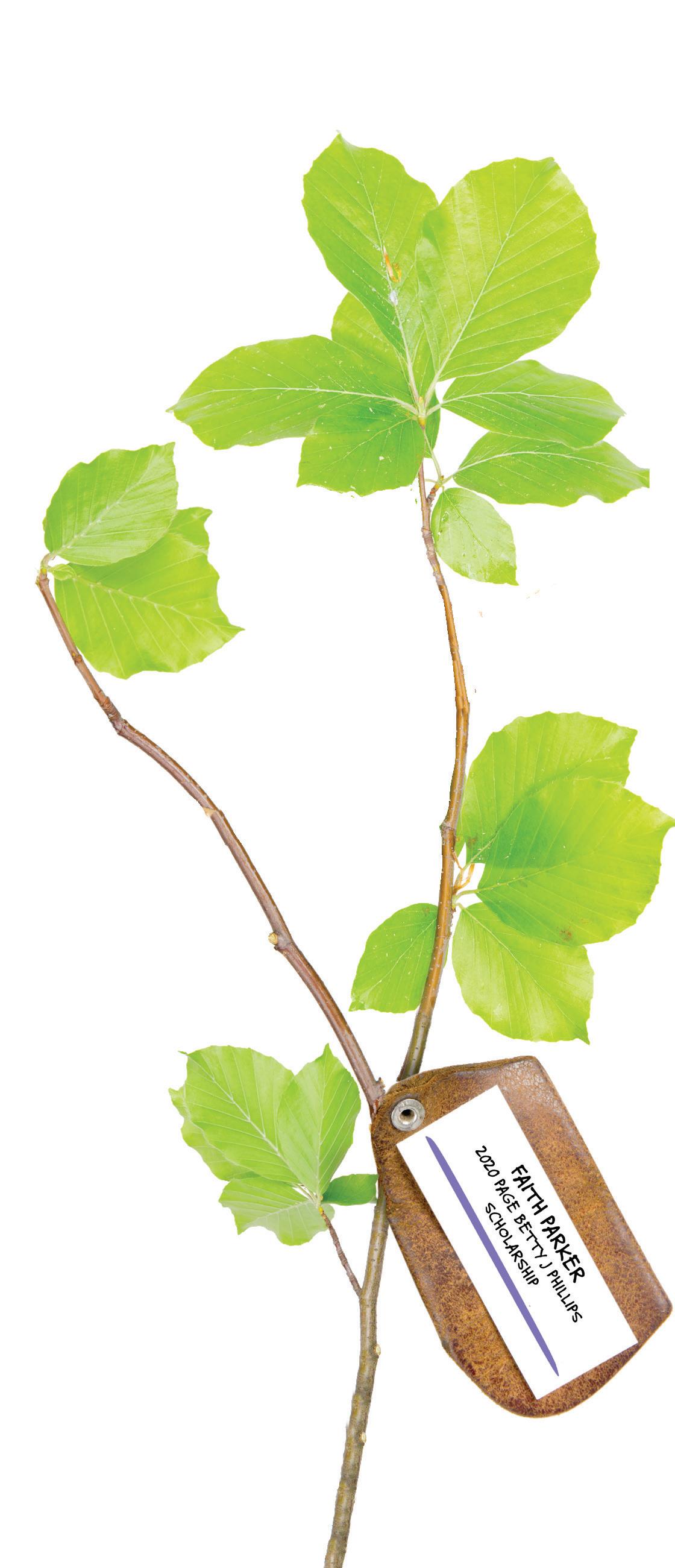
Faith Parker won the PAGE Betty J. Phillips Scholarship in 2020 while in her last semester at Mercer, getting ready to start her student teaching that fall. This particular PAGE scholarship is awarded to a rising college junior, senior, or graduate student.
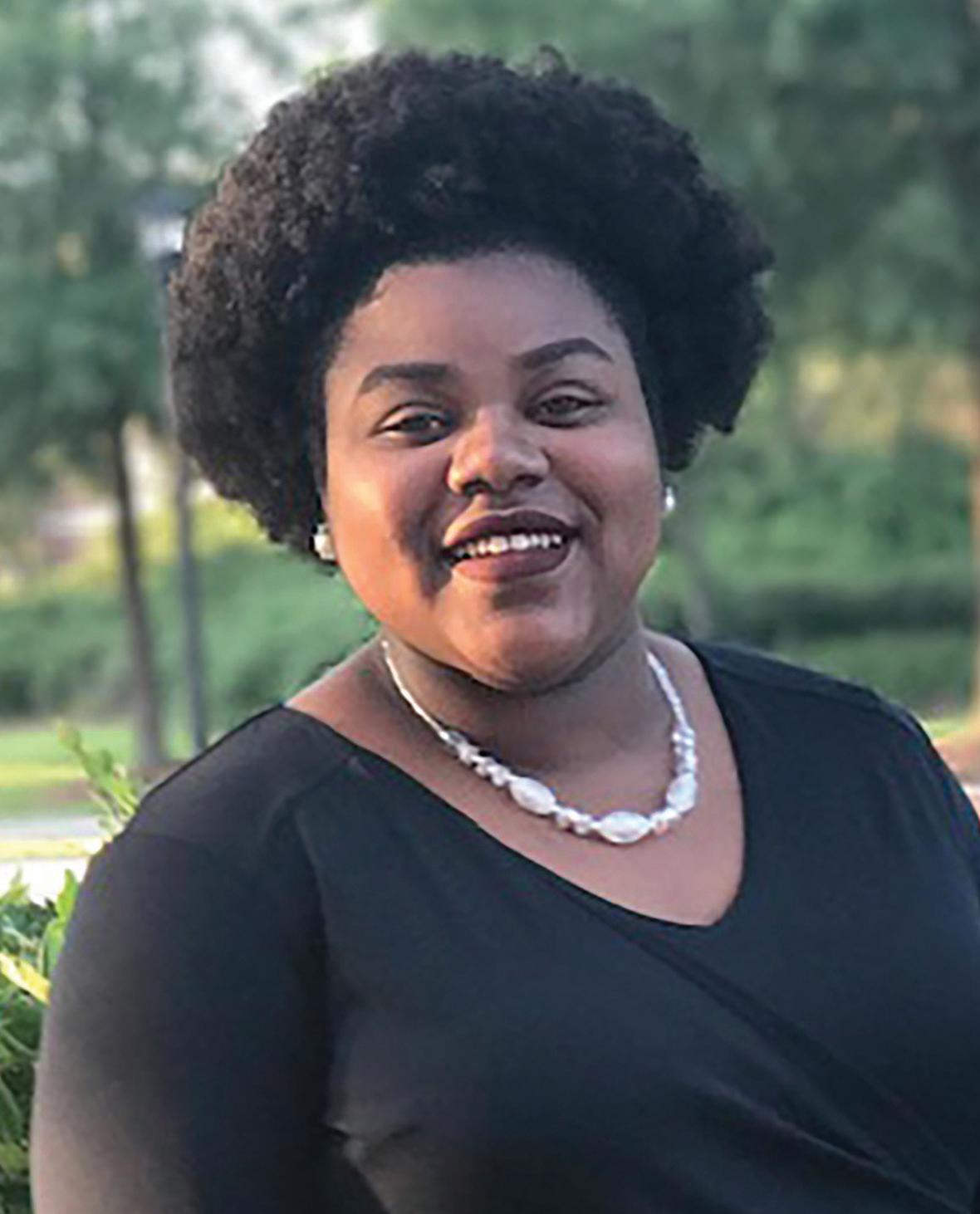
Parker, a music education major, went on to graduate in December 2021 and is now in her second year teaching at Clements Middle School in Covington. She is the band director and also teaches general music.
“The scholarship was very helpful,” said Parker. “I come from a single parent home, so it helped financially. I needed support — and though I did receive some scholarships from Mercer — the funds had run out. I had to make sure I had some extra money to get my career started.”
Parker said as soon as she applied to college, she started applying for various scholarships.
“PAGE came to our school and I saw in one of their magazines that I could apply as a college student for
scholarships,” she said. “It really helped me. I ended up not owing anything for my student teaching, so I was able to get out without being in debt.”
Parker hopes to continue her education, eventually teaching at the college level. She has been applying to graduate programs including Georgia State University and an online program at VanderCook College of Music in Chicago.
“I want to get my master’s degree in music education and hopefully return for a specialist degree. I would consider working in administration one day or going on to become a fine arts instructional coach,” she said. “I came from a family of band directors. My brother is a band director in Macon. I always knew I wanted to be in education. I want to give back and be the change I want to see.”
“The scholarship was very helpful. I come from a single parent home, so it helped financially.”
Could you benefit from up to $1,500 in support of continuing education and career growth? Awarded annually to teachers pursuing advanced degrees, paraprofessionals studying to become teachers, and educator-pathway college students, scholarships are open to all PAGE members.
• Up to $27,000 in scholarship funds available this year
• More than $600,00 awarded since program inception
• Applications open through Tuesday, May 30 for 2023 awards

Would $500 make a positive difference for you and your students? If so, apply today for a PAGE Educator Grant. A PAGE Educator Grant can help you acquire additional resources for your students, classrooms, and digital learning needs.


• A total of $100,000 in grant funds will be awarded this year

• Applications are closing soon! Apply by Sunday, Jan. 29

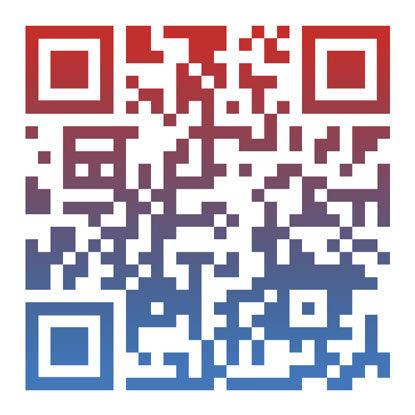
Teaching is highly rewarding — and highly challenging.
New teachers have a lot to overcome: There are lessons to plan, names to memorize, school and district procedures to navigate, classrooms to manage, and relationships to build. Some of this is referred to in college textbooks. In reality, most is learned on the job.
Veteran teachers face obstacles also: There is everevolving technology to master and a steady supply of new information to integrate into lesson plans.
Established classroom routines and approaches can become stale, and the passion that originally brought
educators to the profession can wane, contributing to teacher burnout.
A strong mentorship program can positively impact new and veteran teachers alike in extraordinary and lasting ways. This impact extends to students, families, and school communities.
In mentor relationships, newer teachers rely on other teachers to bridge the gap both professionally and personally between what they learned in school and what they’re encountering in the classroom. These colleagues serve as a trustworthy, non-judgmental support system to get them through the learning curve of their first year teaching or first year in a new school system.
A strong mentorship program can positively impact new and veteran teachers alike in extraordinary and lasting ways. This impact extends to students, families, and school communities.
At the same time, strong mentor-mentee relationships benefit mentors as well. Teachers who are supported in their schools are more likely to succeed, and veteran teachers have an opportunity to learn new things from a younger generation of teachers.
Schools and districts also benefit as new teachers are more quickly integrated into processes and protocols and, ultimately, students benefit, as teachers who are supported by their administrators and colleagues are free to focus more of their efforts on teaching.
Teacher mentorship programs — both formal and informal — actively cultivate a supportive atmosphere. They act as built-in support systems to help teachers become better educators, but can also help foster personal growth, emotional wellness, and a stronger

work-life balance, enabling teachers to find more joy and fulfillment in the profession. [In our winter 2022 educator survey, 83 percent of responding new teachers (one to three years in the profession) report that they presently have or have recently had a mentor. Within this group of respondents, 92 percent indicate that support provided by mentors was helpful. Visit bit.ly/3GGzN51 to access the survey report.]
We talked with teachers throughout the state and asked about the overall value of mentorship programs and the impact having a mentor and / or mentee has had on their careers, their lives, and the students they serve. We asked what they’d most like to share with fellow PAGE members about their mentorship experience.
Here’s what we learned ...
Many educators receive powerful mentoring during their first few years of teaching, but for others, extraordinary mentors come along later in their careers. John Garner met his most memorable mentor, Steve Quesinberry, during his sixth year in the classroom. It was a relationship that made a meaningful impact on him and his students at the time, and one that has continued to effect thousands of students, families, community members, — and even other teachers — many years later.
Garner, now a 15-year teaching veteran who currently teaches history at Temple High School in Carroll County, met Quesinberry at Newnan High School in Coweta County. Quesinberry was his
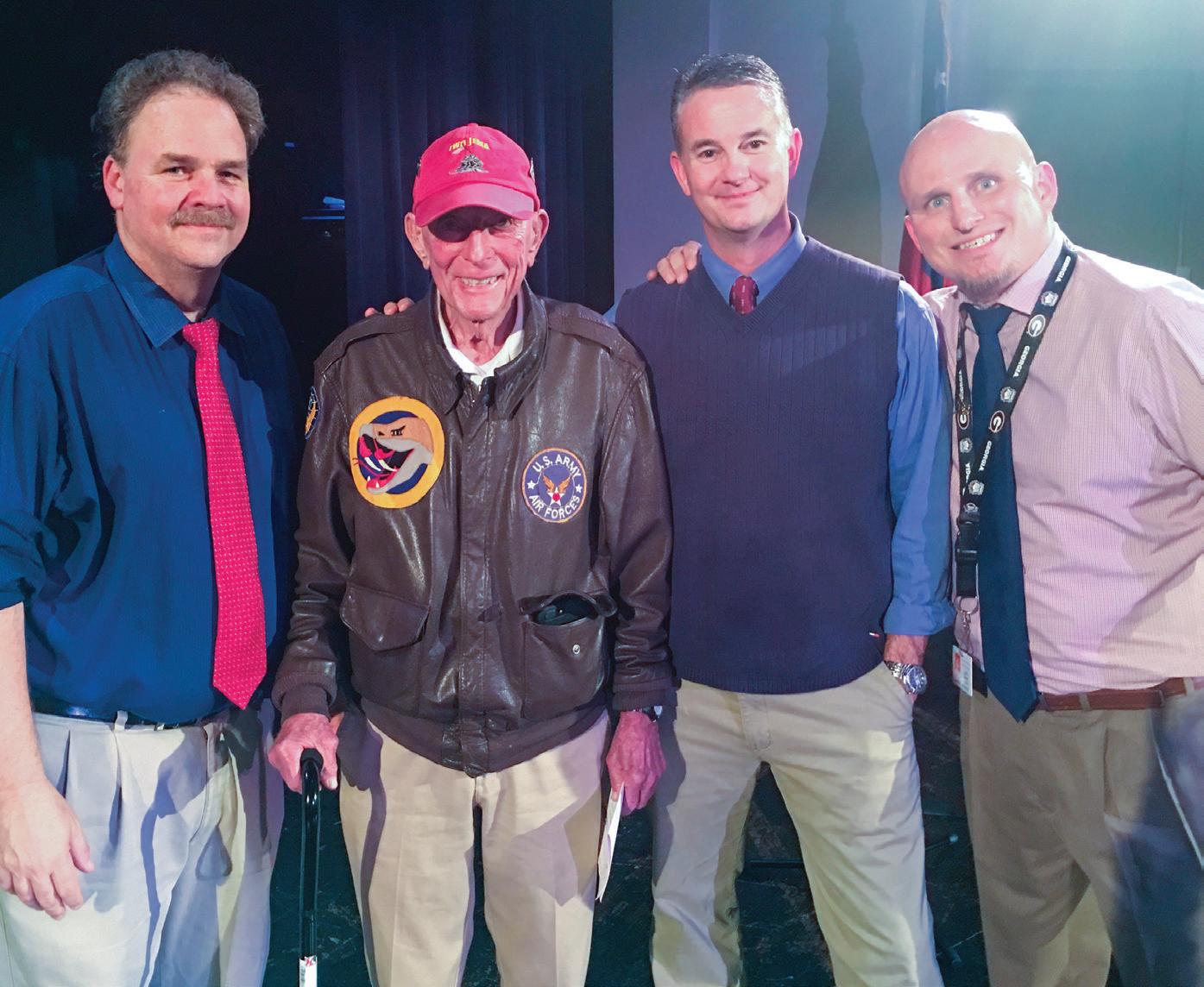
department chair there for five years.
Quesinberry, now retired and working part-time teaching American and world history at the University of West Georgia, taught history at Newnan High School for 36 years. He served as the school’s history and social studies department chair for 31 years.
“There was such a dynamic group of social studies teachers there, and Steve was over all 16 of us,” says Garner. “I would visit him every day in his classroom. I always had a lot of passion and energy, but Steve helped me focus that energy.”
At the time Garner met him, Quesinberry was teaching world
(From left) Steve Quesinberry, Captain Jerry Yellin (who flew as the last fighter pilot in the last dogfight of World War II), Frankie Henderson (the teacher who co-created the Student-Vet Connect program with Quesinberry), and John Garner.“I loved teaching –still do – and I wanted everyone else to love it, too. If you’re happy, you’re better at it. If you feel supported, you’re better at it.”
– Steve Quesinberry
“I was an educator when I got to Newnan. I became a teacher after meeting Steve.”
– John Garner
history and a self-designed course on the Vietnam War. He had also conceptualized a popular StudentVet Connect program, now in its 25th year. Quesinberry, who co-created the program with another history teacher, did so in order to enable students to personally get to know veterans. Each year, the program invites veterans to share their experiences with students in an informal setting.
“We are fortunate in Newnan to be right across the street from
the Georgia Army National Guard armory,” says Quesinberry. “We invite the veterans to set up some of the memorabilia they brought back from their time in service, and the kids come in and get a chance to talk to them.”
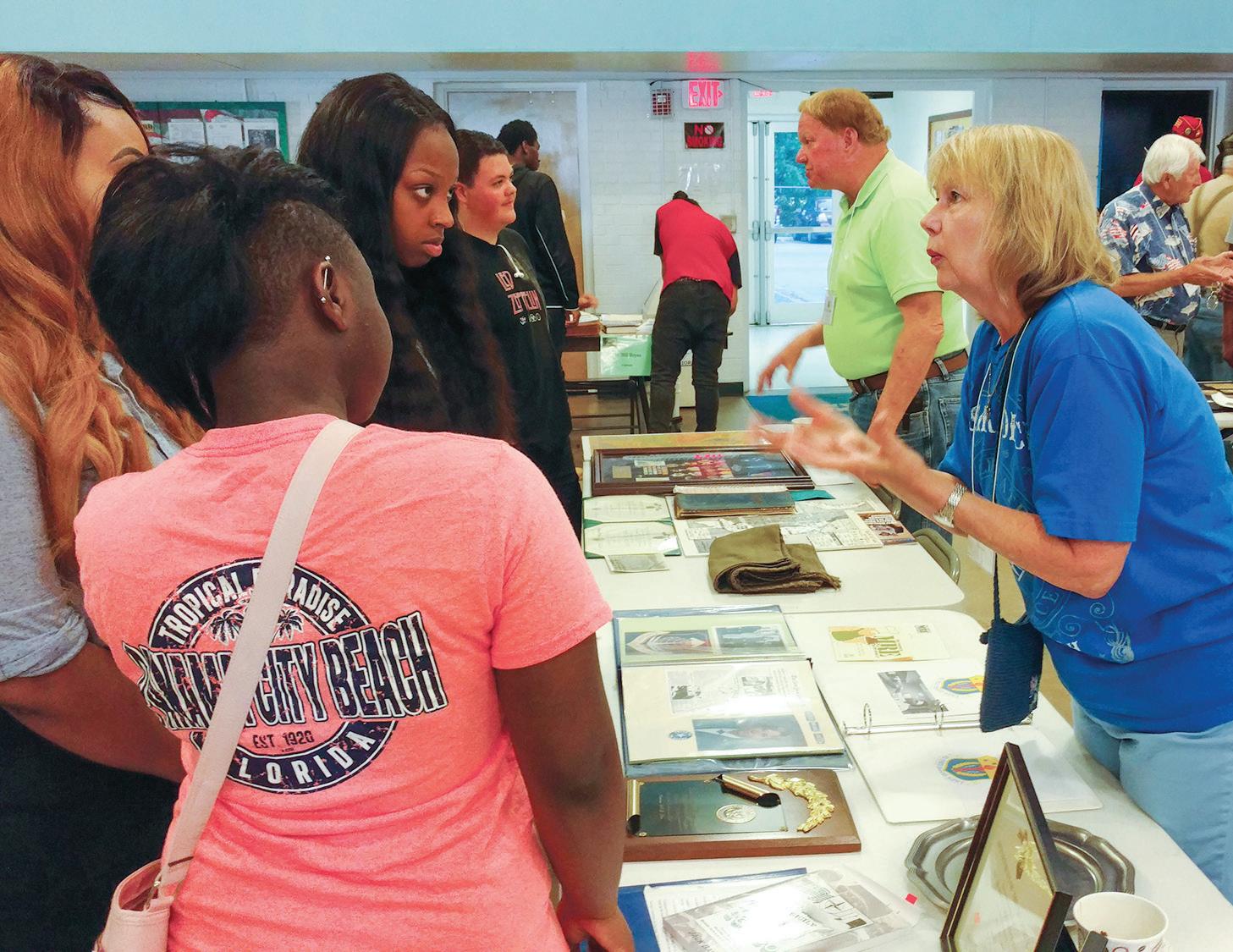
Garner was so inspired by the Student-Vet Connect program that he has since brought the program to his school in Carroll County. He also started his own history club. Under his leadership, the Temple High School
National History Club has earned the National History Club Chapter of the Year award the past two years — an accolade awarded to only five clubs nationwide annually — and Garner has won the National History Club Advisor Award twice.
At Newnan, when Garner had an idea to start a Civics Day to feature various civic leaders in the community, Quesinberry encouraged him, handing over all the local contacts he had. Garner also jumped
Students and veterans gather as part of the Student-Vet Connect programs in Newnan (Coweta County). John Garner, inspired by his mentor, Steve Quesinberry, brought the program to the school in which he currently serves, Temple High School (Carroll County).
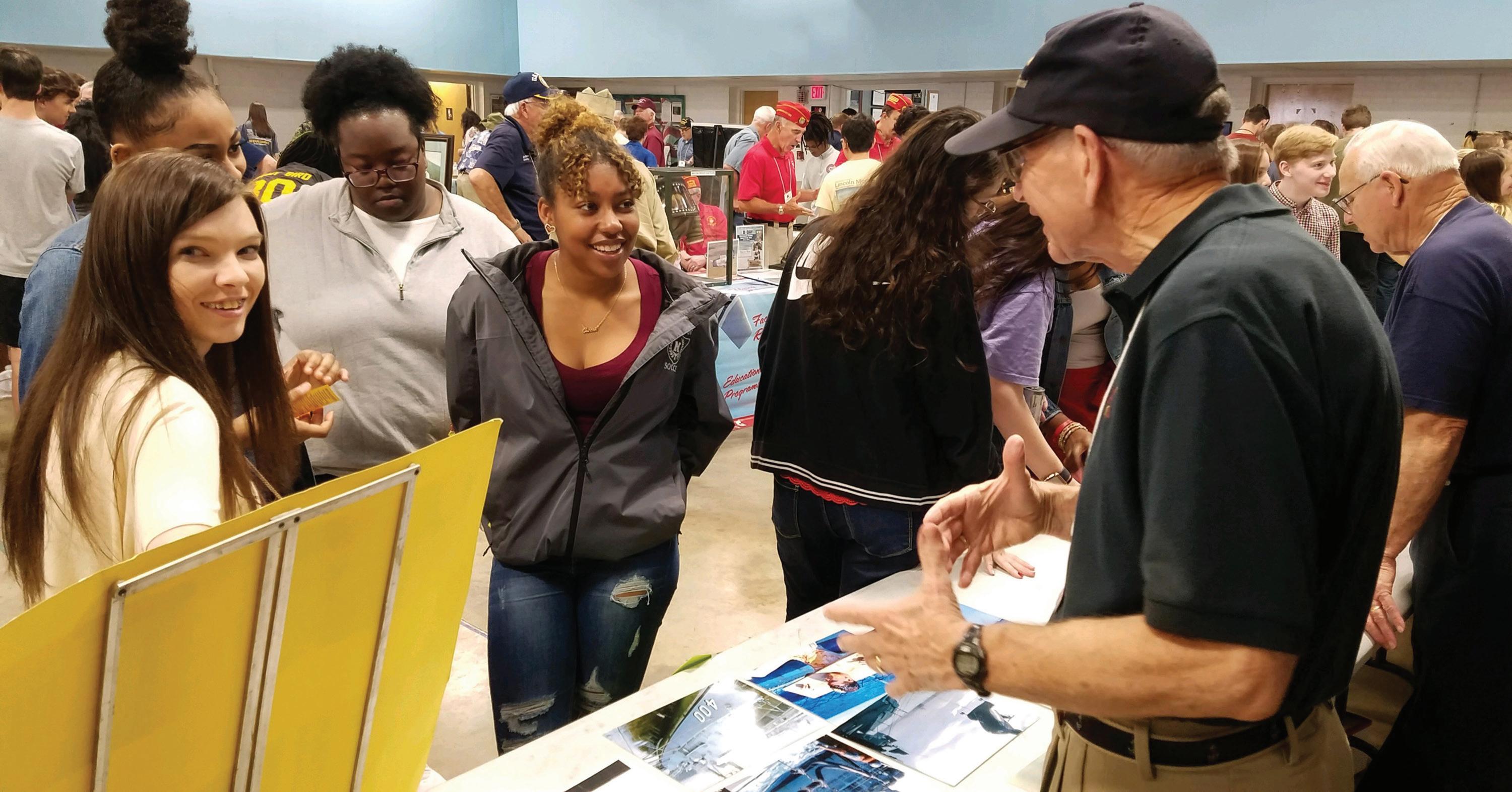
in with a co-sponsor to lead the history club at the school — another of Quesinberry’s ventures. For five consecutive years, it was the largest history club in the United States.
“Seeing the way Steve supported others and how he would give his own time and energy to explain his programs and why they were successful has led me to do a lot of the things I do today,” says Garner.
While in Carroll County, Garner has continued to follow Quesinberry’s lead. He started a countywide Black History Club where students hear from Freedom Riders and other individuals who participated in the 1960s civil rights movement. In Coweta County, with Quesinberry’s endorsement — and in Carroll County now — Garner also started a tradition of signing ceremonies for students entering the military after high school.
“Each year, we had signing ceremonies for every student who was going to run a ball somewhere, but we didn’t do anything for our students going into the military,” says Garner. “Now, we have a Future Soldiers signing night where kids come in with their parents and the recruiters stand behind them.”
All of this, Garner acknowledges, was inspired by Quesinberry.
“I was an educator when I got to Newnan. I became a teacher after meeting Steve,” says Garner. “He showed me what it meant to get involved in the community and various ways to do that. I would not be where I am today if not for him.”
Where Garner is today is impressive. He was recently named the 2022 Georgia History Teacher of the Year — an award presented each year by the Gilder Lehrman Institute of American History. Four years ago, he

was named the VFW Georgia History Teacher of the Year, and he was named the 2021-22 Temple High School Teacher of the Year and the 2022-23 Carroll County Schools Teacher of the Year.

Garner says he has taken what he learned from Quesinberry and uses it to share his love of history with the next generation.
While in Newnan, Garner ran the school’s History Bowl team. Quesinberry helped him secure the funding to attend the national tournament all five years he was
Students greet veterans as part of the StudentVet Connect programs led by Steve Quesinberry and John Garner. Quesinberry began mentoring Garner during his sixth year in the classroom. “Seeing the way Steve supported others and how he would give his own time and energy to explain his programs and why they were successful has led me to do a lot of the things I do today,” says Garner.
there. Since then, Garner has set up academic tournaments on multiple continents. He has also traveled the globe with his students — on field trips that include Canada, Iceland, and Germany.
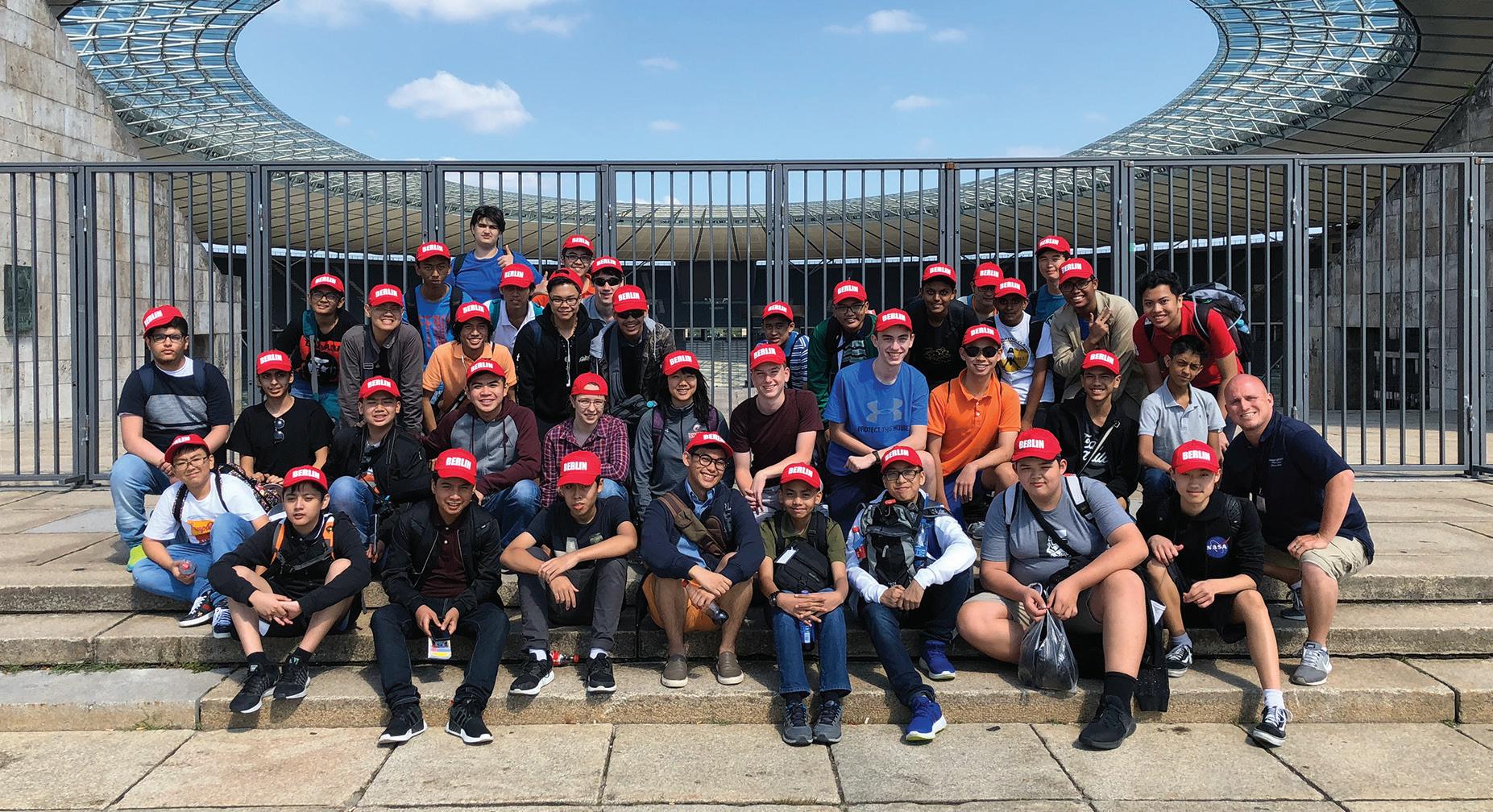
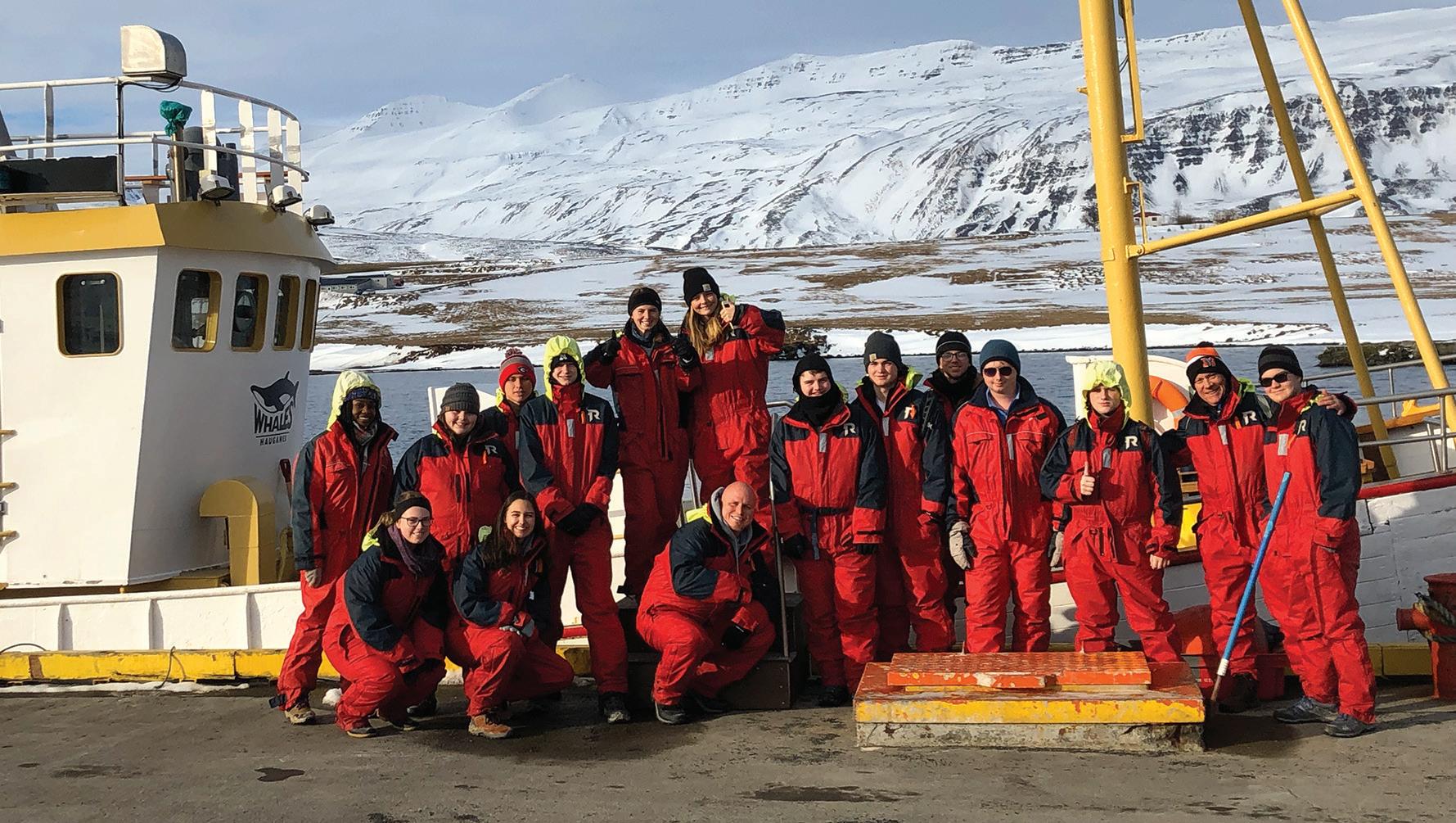
“I give a lot of the credit to Steve,” says Garner. “The way he ran his department, mediocrity was not an option. He was all about bringing history alive, and that’s something I have adopted.”
Quesinberry praises Garner for being a fantastic educator in his own right.
“He was easy because he wanted to be good. It was never just a job for him — he wanted to make a difference,” says Quesinberry. “I loved teaching — still do — and I wanted
everyone else to love it, too. If you’re happy, you’re better at it. If you feel supported, you’re better at it.”
For Garner, paying it forward and inspiring young and passionate teachers is the best way to honor his mentor’s legacy. When teachers come to him with their ideas, he listens and helps them cultivate their own programs and innovative lesson plans.
“I know there were times Steve didn’t have time to sit with me at 7:15 in the morning and listen while I was trying to grow a program or get things done, but he would take the time and that really left an impression on me,” says Garner. “Now, anytime someone calls me about getting a history club up and going or a new speaker series, I try to dedicate as much time to listening and helping them as I can.”
Steve Quesinberry“He was all about bringing history alive and that’s something I have adopted.”—
When the district coordinator sends over the list of new teachers to the school system each year, Kelli Dorminey works with her principal to match each incoming educator with a mentor as part of her school’s mentorship program.

“We pull from a pool of teachers willing to serve as mentors and then assign a mentor to each mentee,” says Dorminey, who teaches fourth grade ELA at Cross Creek Elementary School and serves as Lead Induction Coordinator at the school.
As part of Cross Creek’s program, new teachers stay with their mentor for the first three years.
Dorminey was Cross Creek’s 2017-2018 Teacher of the Year. Now in her ninth year teaching, she served as a mentor for three years before becoming the lead mentor coordinator.
“It’s huge to have a support system because when you’re new — whether you’re straight out of college or new to the district — just having that support and not feeling like you are out there on the iceberg alone makes a big difference,” notes Dorminey. “Mentees have a wealth of information right at their fingertips from that more veteran teacher and that’s priceless.”
She remembers one of her recent mentees — Stacey Williams — who began as a paraprofessional before earning her teaching degree in special ed. While in the program, she had Dorminey as a mentor, as well as Summer Perry, a special ed teacher who served as another layer of support.
“One of the cool things about the mentor program is that we’re there to answer questions the mentee has — as
well as questions they may not know to ask,” says Dorminey. “Stacey has such an upbeat personality. She was like a sponge absorbing support to become a teacher.”
Today, Williams is in her fourth year as a third-grade special education inclusion teacher at Cross Creek.
“I don’t think I could have done it without mentors,” notes Williams. “They helped me with everything.
Stacey Williams (left) and Kelli Dorminey (right) meet for a discussion.“It’s huge to have a support system because when you’re new whether you’re straight out of college or new to the district just having that support and not feeling like you are out there on the iceberg alone makes a big difference.”— Kelli Dorminey
When you’re new, you can be embarrassed to ask questions. With a mentor, you have someone who has been doing it a while and knows what they’re doing. I still go back to them with questions.”
Dorminey observes that serving as a mentor also helps veteran teachers develop their leadership skills.
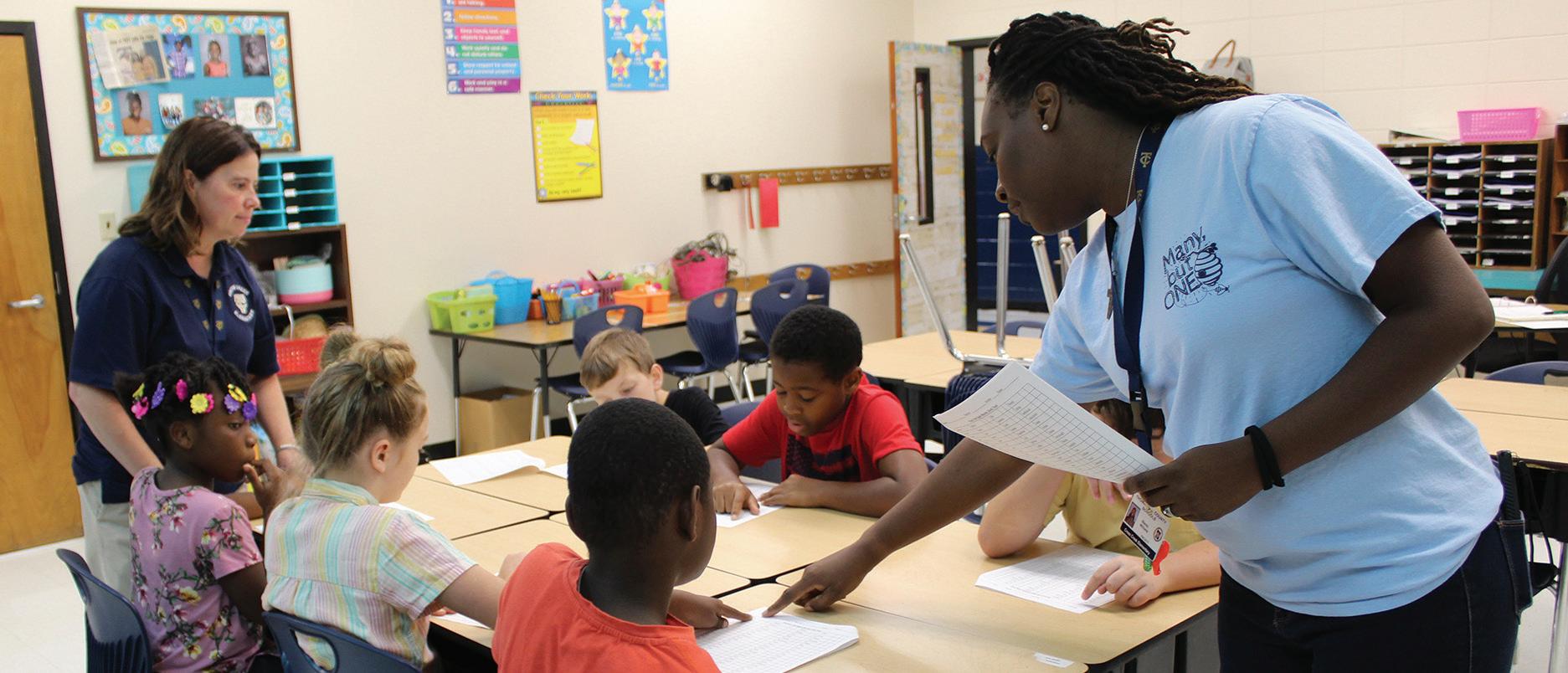
“Teachers like being mentors. I found that when I took over as lead coordinator that they are often surprised — in a good way — that someone thinks of them as a highly effective teacher and someone who could be a good mentor,” she says. “It boosts their confidence as well.”
Mentors also provide moral support and help new teachers achieve greater work/life balance, which can help reduce stress and ultimately increase teacher retention.
“In special ed, you deal with a lot. There’s a lot going on. I was able to go to them and vent my frustrations. Having someone who understood saved me from having breakdowns in front of students,” says Williams. “In every aspect, as a teacher and away from school, they were there to hold my hand, give me hugs, and boost me up. They gave a lot of encouragement.”
Williams said the best part of her experience as a mentee was the
immediate access and feedback from her mentor.
“I had both of their cell numbers,” she says. “School hours, non-school hours, weekends, holidays — I was able to reach out and they were right there to answer my questions.”
“Mentorship is invaluable,” adds Dorminey. “I think of it like a new kid in the classroom. As a new teacher coming to a new building or district, you are the new kid. As a new teacher, you feel unsure of yourself. Having a mentor — that colleague who is there — definitely serves as a lifeboat. When teachers feel overwhelmed, having a mentor makes it feel like more of a team effort, which is huge.”
“I don’t think I could have done it without mentors. They helped me with everything. I still go back to them with questions.”
– Stacey WilliamsBefore beginning her teaching career at the age of 38, Mary Jo Fina worked in healthcare. When she started, there was no formal mentorship program at her school, but she still relied on the help of her colleagues — many of them in their twenties — to get her through those first few years.
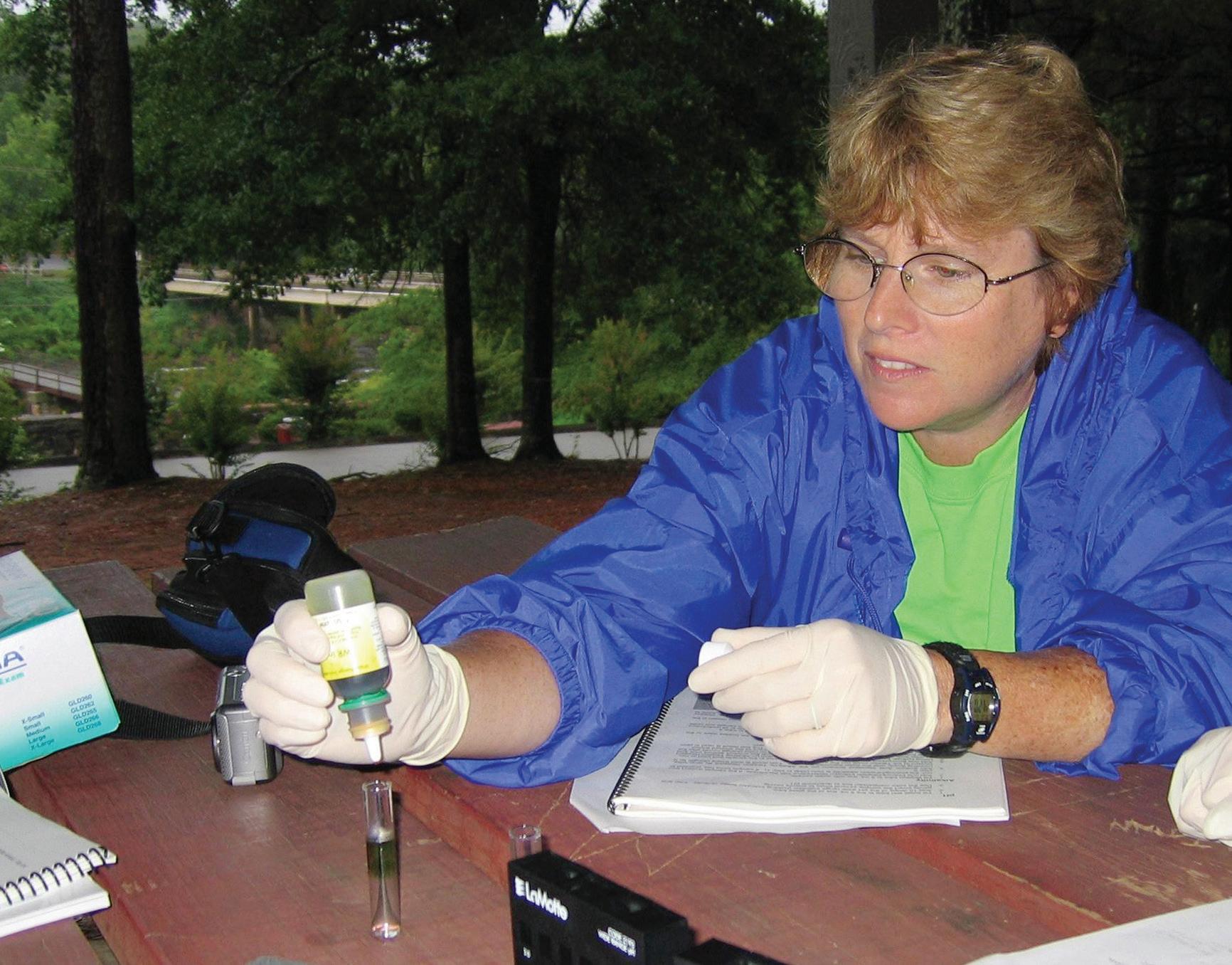
“They were great to me,” she says. “They taught me everything from what to do if there’s a fight on a bus to how to write an engaging lesson plan and even what to do on lunch duty. They were there to teach me all of it.”
Before teaching, Fina worked as a
nurse manager and in public health. The shift to teaching, she admits, was huge.
“In healthcare, I was used to people listening to me. Then that first day in class, you get there and all of a sudden no one is listening,” Fina says. “It was those other teachers who taught me how to be successful. I was lucky. They taught me how to be a teacher and they didn’t have to, so it’s my job to help the next person.”
One of those tips, Fina remembers, was to take a photo of each student in your class to help you learn their names. It’s a tip she still uses today,
21 years later, as a health care science teacher at Richmond Hill High School in Bryan County.
For the past five years, Richmond Hill has had a formal mentorship program in place that matches new teachers with a mentor for their first three years. Mentors apply and go through a formal training program. Fina has had several mentees, some new teachers and others new to Bryan County.
“I applied to be a mentor because I feel like the only way to help the next person be the best they can be is to be there for them,” says Fina. “As
Mary Jo Fina tests water quality for an Adopt-A-Stream program as part of her earth science class.a mentor, you’re saying, ‘I want to be your go-to person. I don’t want you to experience frustrations.’”
Fina’s mentee this school year is a new teacher named Eli Bray, a health care science teacher and athletic trainer.
“It’s nice for me to observe her as a mentor because her commitment is so obvious. She’s so passionate about what she’s doing,” says Fina. “Earlier in my career, I loved having student teachers because you learn so much from them. They know all of the newest technology — they are going through school learning all of the latest stuff — and everyone is better for it.”
Fina remembers firsthand how a mentor can change the trajectory of a new teacher’s career. She says there was a time during her first year when she considered leaving teaching. A mentor convinced her to stay.
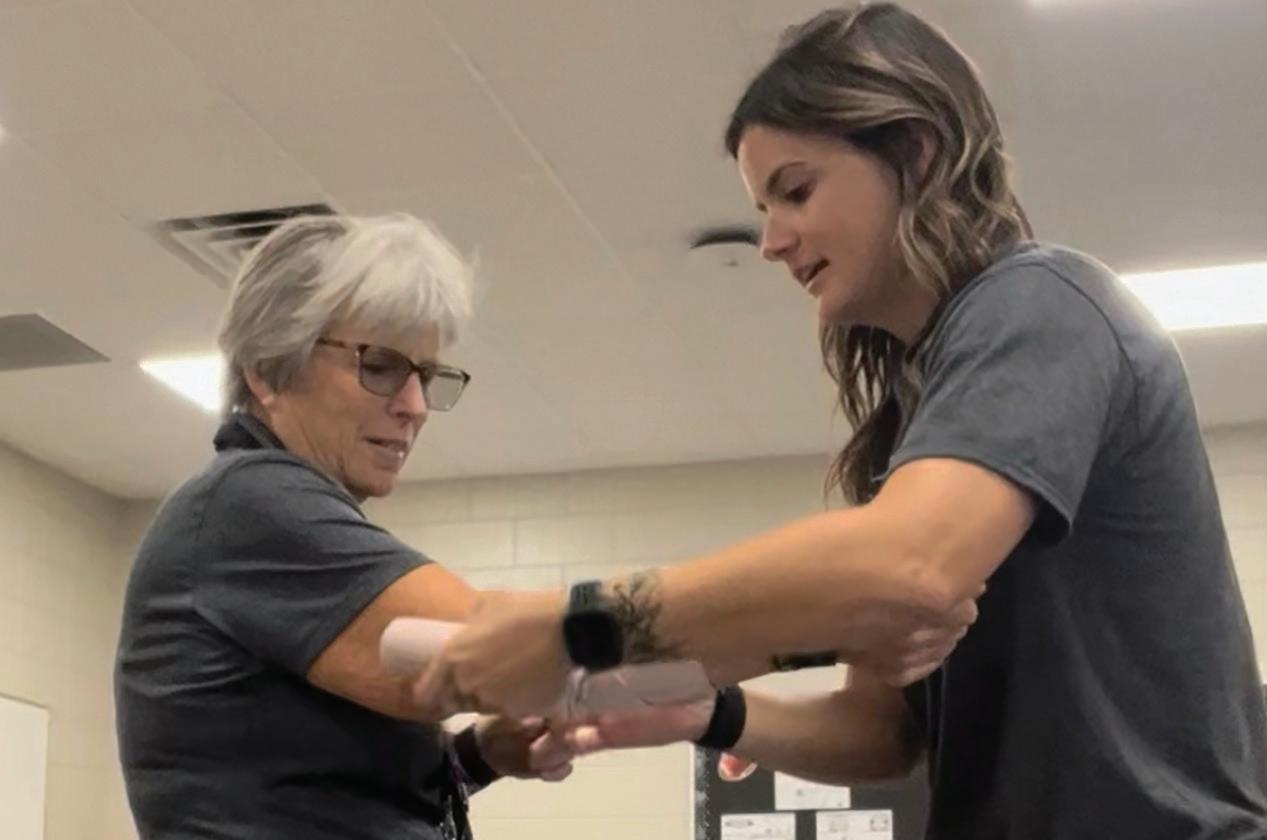
After a particularly difficult situation with a student who was being bullied in her class by a group of girls and the school failed to act, it was a fellow teacher who took charge. Together, the student’s teaching team, including Fina, met each day to rearrange groups and activities to build the student’s confidence. By the end of the school year, the student was a completely different and far more confident student.
From the incident, Fina learned how to identify bullying more quickly and became more aware in her classroom so she could more proactively intervene. She also had her faith in teaching — and the positive impact she could have on her students’ lives — restored.
“I’m sure you’ve heard stories from mentees about how they were ready to quit. All those years ago, I was no different. If not for my mentors, I would have.”
“I’m sure you’ve heard stories from mentees about how they were ready to quit. All those years ago, I was no different. If not for my mentors, I would have.”
— Mary Jo FinaIn her 19 years teaching at Sugar Hill Elementary School in Gwinnett County, Chris Wood has taught everything except third grade homeroom.
This year, she serves as the Collaboration, Leadership, Innovation, Creativity, Knowledge (CLICK) teacher, which allows her to support students so teachers can extend the use of technology in the classroom.
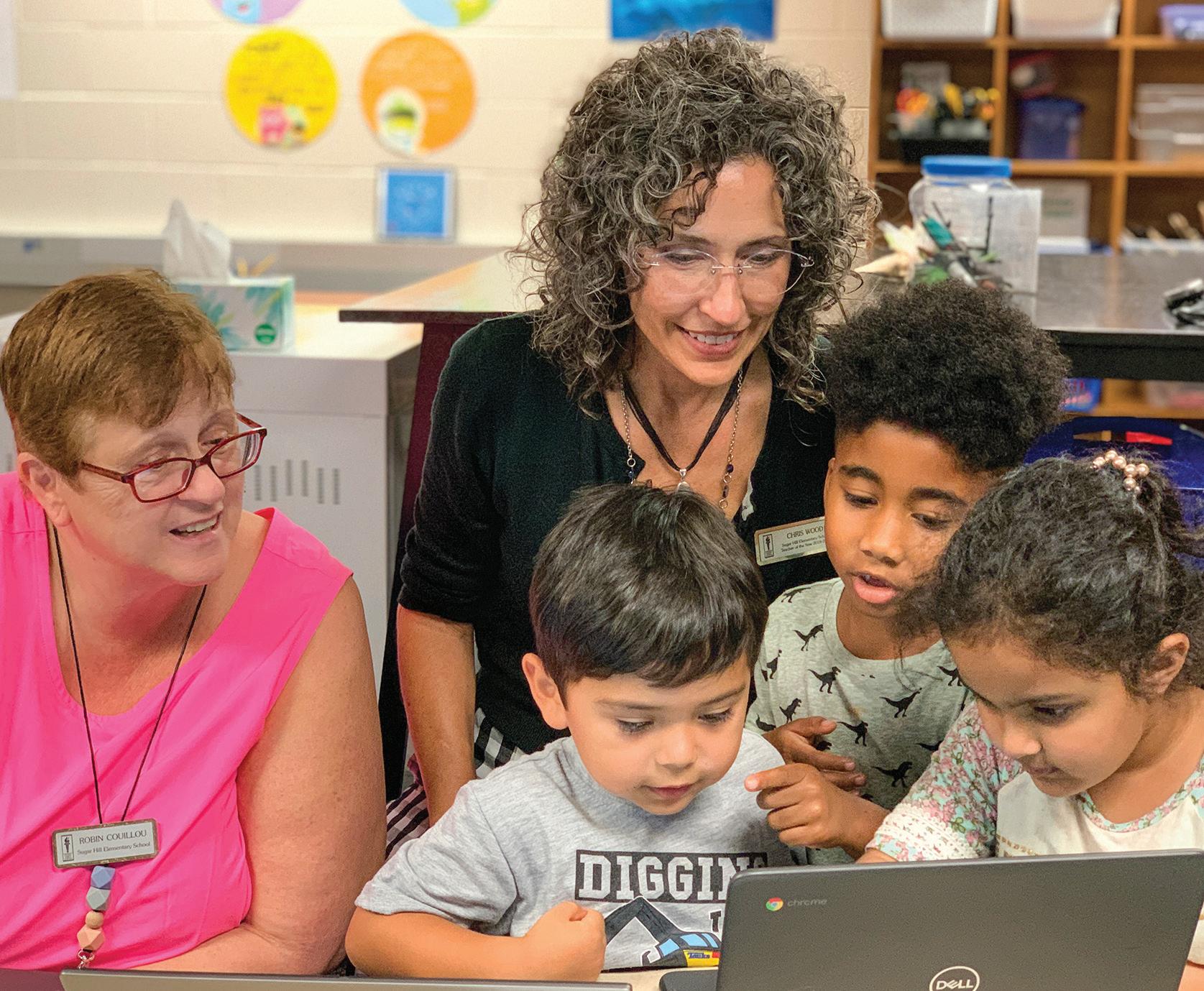
Wood also provides informal mentoring to many teachers as a Class Dojo building mentor at her school and participates in the peer coaching program where veteran teachers observe new teachers, provide feedback, and share resources and ideas.
“Mentors are a living, breathing ‘how-to’ manual,” notes Wood. “You don’t have to look it up or wonder — you just open the door and ask. Whether it’s formal or informal, we are here to help with everything from time management to that overall feeling of belonging, which is so important those first few years.”
Wood also provides camaraderie. Just recently, Wood recognized that a coworker was stressed and needed a moment to collect her thoughts, so she covered her class for a few minutes so that she could regroup.
“We have to take care of each other if we’re going to be able to continue to give,” says Wood. “As mentors, we can’t take your work home for you or do your grading for you, but we can provide emotional support.”
Sometimes mentoring comes in the form of sharing resources.
“I have teachers thank me for the resources I have created throughout the years. Not only does it help with their time, but it builds me up as well,” says Wood.
There are times when Wood also learns from her mentees.
“When I’m working with younger teachers, their excitement and ideas — it gets me excited, too,” she says. “It helps you reflect on your own practices when you are discussing it with others.”
Wood remembers Sam Young, her own mentor as a firstyear teacher.
“She was my go-to person and a phenomenal teacher. She’s still here, and we have remained close friends over the years. Those mentoring relationships grow and continue. It’s not a one-and-done kind of thing.”
Robin Couillou (left) is a paraprofessional who supports several grade levels. In this photo, she is working with Chris Wood (center) to help kindergarten students as they develop skills using their school Chromebooks.“We have to take care of each other if we’re going to be able to continue to give.”
— Chris Wood
Sometimes, a mentor sees potential in a teacher that he or she has not yet seen.
Kindal Smith spent nine years as a high school English teacher before becoming the specialist and technology coordinator at Crisp County Primary School. As a veteran teacher, she is now being mentored for the next step in her career: leadership.

“I’ve been a mentee for the last two years with the leadership team at my school,” says Smith. “Media specialists are in the service field and not typically considered administrators. But there’s just one of me in the building, so I already had a leadership role in a sense.”
It was a mentor who recognized Smith’s potential to lead and first encouraged her to pursue a leadership path. Smith, who was approached by her principal to join her school’s aspiring leaders cohort two years ago, recently completed the Leadership Alternative Preparation Program. Since then, her leadership and administrative responsibilities have continued to increase.
“Our superintendent, assistant superintendent, principal, and the rest of the administrative team are working with me and continue to mentor me with specific goals I am working on,” says Smith. “As I move into leadership, that has been especially helpful.”
Smith meets with her school’s leadership team every week and also has a standing one-on-one weekly meeting with her principal, where they discuss ongoing projects and follow up on her progress and goals.
“It is very reassuring to hear their feedback, and nice to have a sounding board,” adds Smith. “It’s really grounding.”
Smith hopes to become a school principal one day and eventually a superintendent. She also hopes to serve as a mentor to future leaders.
“Leaders are constantly building other leaders around them,” she says. “It took someone on the outside looking in at me and seeing my potential, saying, ‘You need to do this; you need to try this … I see things in you that you don’t see in yourself.’ The people who are your mentees, they need to trust you so that they believe you when you say — ‘yes, you were made for this.’”
“Leaders are constantly building other leaders around them. It took someone on the outside looking in at me and seeing my potential, saying, ‘You need to do this; you need to try this.’”— Kindal Smith
As the gifted teacher for Crawford County primary and elementary schools, Keturah Rogers teaches students in second through fifth grade. She also teaches a math course to education students at Middle Georgia State University.
Throughout her 20-year career, Rogers has mentored both new and veteran teachers.
In Crawford County, every new and new-to-the-district teacher is assigned a mentor coach. This school year, Rogers has two mentees. One is a first-year first grade teacher who did not go to school to become a teacher, but instead has a background in business.
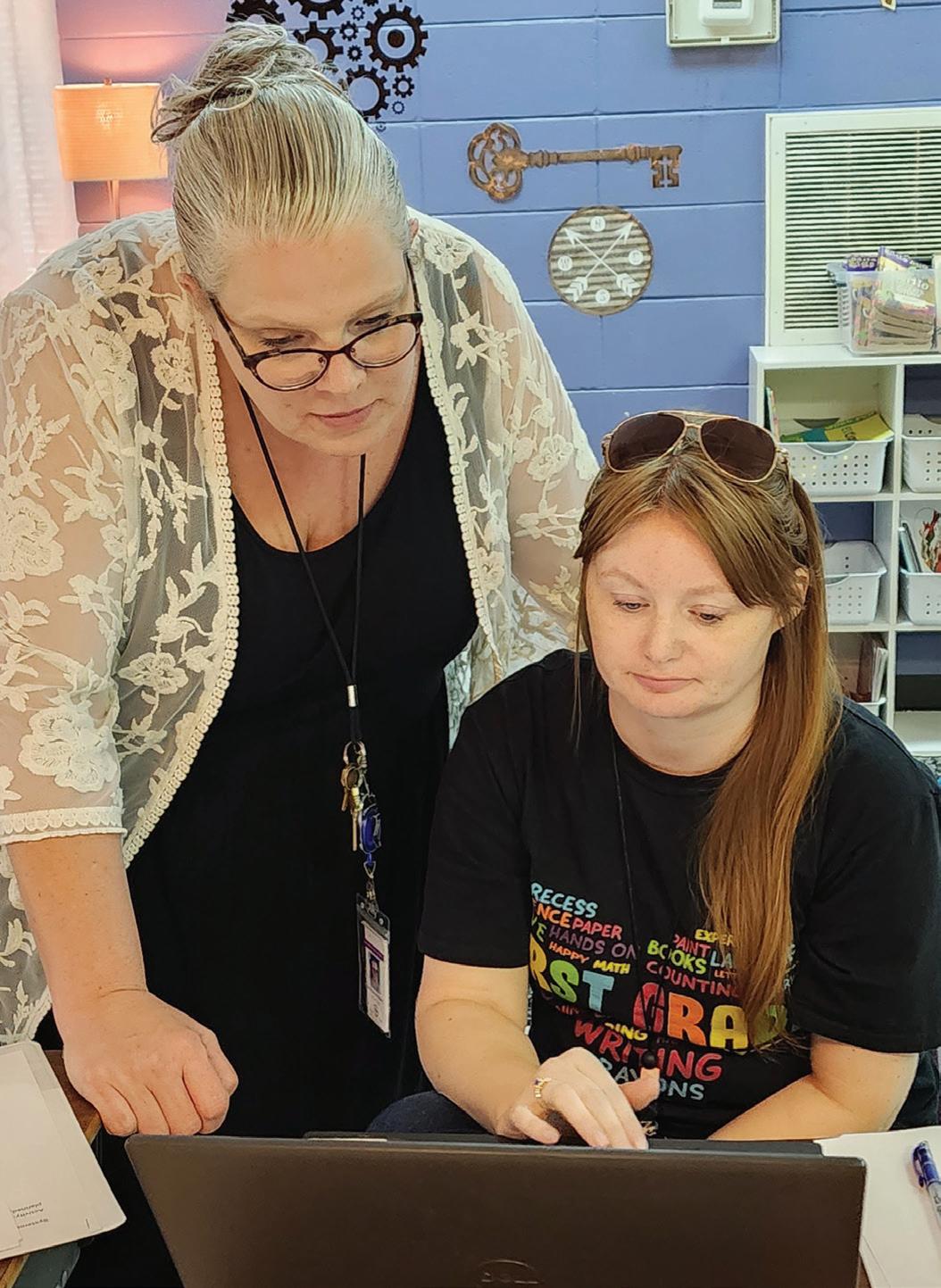
Rogers says she works with mentees on everything from classroom management to teaching strategies and resources, to how to successfully manage stress. And, she often makes videos about how to do certain tasks and makes them available to mentees so they can view them when most convenient for them.
“A lot of times, they don’t want to bother you, even though they have a need,” she says. “I figured out a long time ago that if I made the videos, they could automatically just go back and watch them.”
Rogers’ other mentee is a third-year teacher in “phase three” of the school’s mentorship program.
“In phase three, they feel comfortable in the classroom. I’m more of a teaching buddy,” says Rogers. “They have been through the gamut, but I still go in and observe and give feedback as more of a coaching conversation.”
Rogers notes that even though more experienced, veteran teachers don’t usually need help with classroom management or building rapport with students, they are still typically open to feedback and new ideas that can sometimes help them refresh their energy for teaching.
“We all need that feedback in some capacity,” says Rogers. “Mentorship is critical. When I do peer observations, I want teachers to know that I’m not in their room because they are weak or in need of something. I want them to know I am there because this is our school. I’m not a ‘Level Four’ at everything either.”
“Mentorship is critical. When I do peer observations, I want teachers to know that I’m not in their room because they are weak or in need of something. I want them to know I am there because this is our school. I’m not a ‘Level Four’ at everything either.”— Keturah
In Monroe County, every new teacher — or veteran teacher new to the county — is paired with a mentor teacher their first year in the classroom.
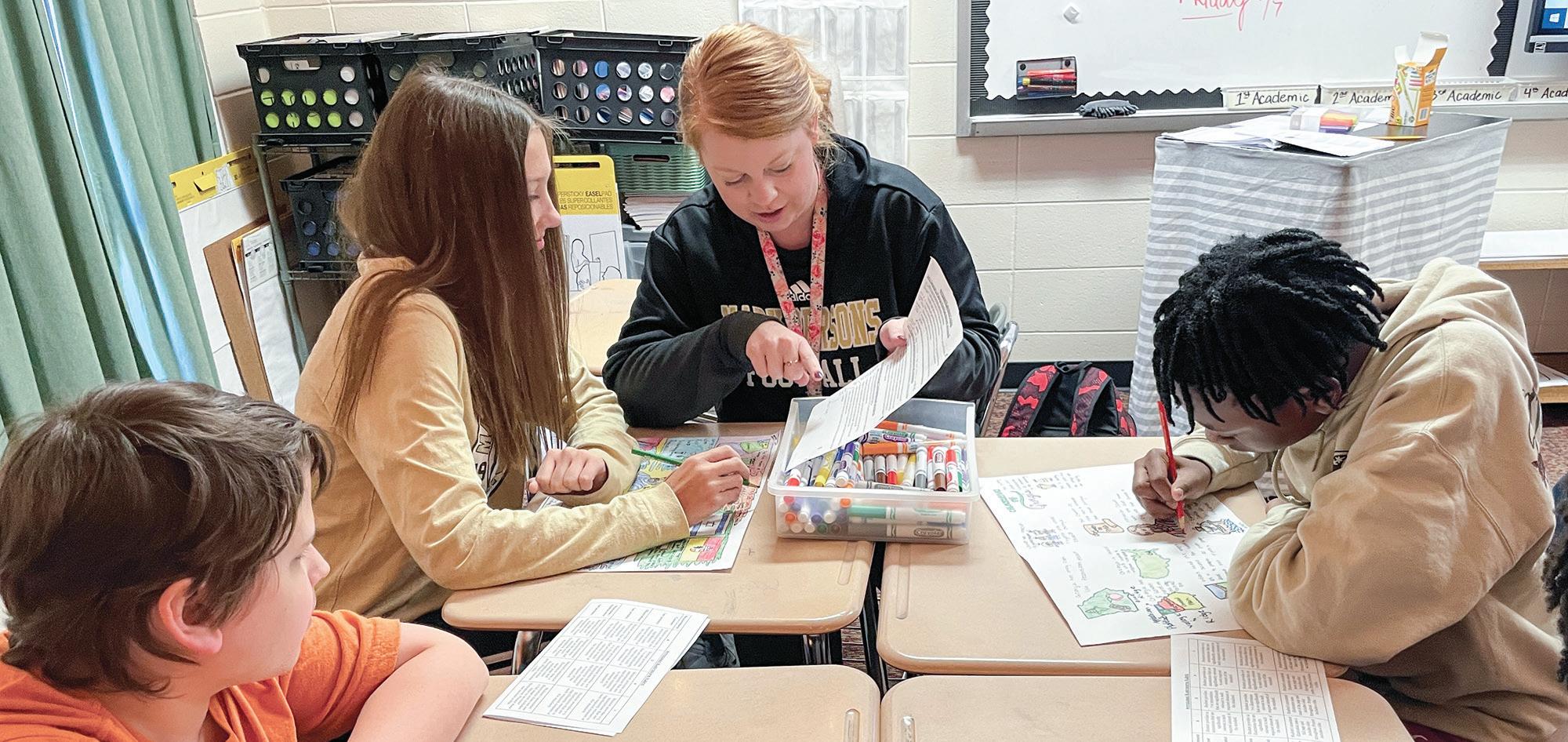
“I had a mentor my first year, and she was fantastic,” says Laura Nelson, an eighth grade Georgia Studies teacher at Monroe County Middle School. “I like to think of it as having a guide for that first year — someone you know you can go to with questions.”
Nelson, who has taught in the county for 10 years, has had four mentees assigned to her during her tenure. Helping new teachers through their first year on the job, Nelson says, is a mutually beneficial process.
“Mentoring is rewarding for me in the aspect that I get to help someone else, but it also helps me grow as a professional,” says Nelson. “Sometimes, my mentees ask me questions about things I have forgotten about. You want them to succeed with you. They’re a part of your team now, so you want to help them grow and be successful. I think it helps me as much as it helps them.”
Nelson still remembers the advice her mentor gave her during her first year.
“I was out sick and felt horrible leaving my coworkers with extra work. She told me, ‘This building and these classes have been going on long before you got here and will go on long after. Put yourself first. Taking care of your mental and physical health and well-being is just as important as teaching content and helping kids grow.’”
Nelson shares that advice with her own mentees, encouraging them to ask for help when they feel overwhelmed.
“Having a support system at your school is critical,” says Nelson. “As teachers, we have things happen every day that can be overwhelming. Having people you can turn to who you can trust for advice and support — who can help guide you to fix or solve a problem without judging you or talking poorly about you — is vital.”
— Laura Nelson Laura Nelson works with students in her eighth grade class in Monroe County.“Mentoring is rewarding for me in the aspect that I get to help someone else, but it also helps me grow as a professional … I think it helps me as much as it helps them.”
Niki McLeroy has been teaching for 20 years. Though she doesn’t have an official mentee this school year, she’s had several in the past.

As the director of choirs and music appreciation and the team lead for connections and fine arts leadership at East Paulding Middle School, McLeroy has many opportunities to serve as an informal mentor.
In Paulding County, new teachers and veteran teachers who are new to the county are matched with a mentor their first year. Typically, mentees stay with their mentors for one year, but if they need support beyond that, they can request another year.
McLeroy remembers her own mentor her first year teaching second grade at Lindsey Elementary in Houston County. Though McLeroy was a music teacher and her mentor taught a regular second grade class, she learned a lot about classroom management, building student rapport, and how to successfully partner with parents.
“It was a great experience,” she says. “My classes were shorter — I only saw students once or twice a week for music — but having the opportunity to work with her and see how she managed her classroom was very helpful.”
For McLeroy, mentorship is just another part of building a strong “work family” for support.
“Sometimes mentorship is more informal than formal. It’s like having a cheerleading squad. Having that cheerleader — someone you can count on — is so important,” she says. “My inner circle helps and encourages me every day.”
A supportive community is part of a larger school culture, says McLeroy. Letting teachers know they are seen and valued goes a long way in helping them feel supported.
Niki McLeroy“Students love when someone tells them ‘Happy Birthday.’ Adults need to hear that, too,” she says. “It’s important to make teachers understand that you know their investment
“Sometimes mentorship is more informal than formal. It’s like having a cheerleading squad. Having that cheerleader someone you can count on is so important.”— Lacie Haberkam (left), who started in Niki McLeroy’s (right) choirs in sixth grade and progressed through the choral program, is now teaching in Paulding County.
means something not just to them, but to all of us.”
Candace Simpson has spent her career in Brooks County Schools, where she has participated in the mentorship and support program for new and incoming teachers for many years.
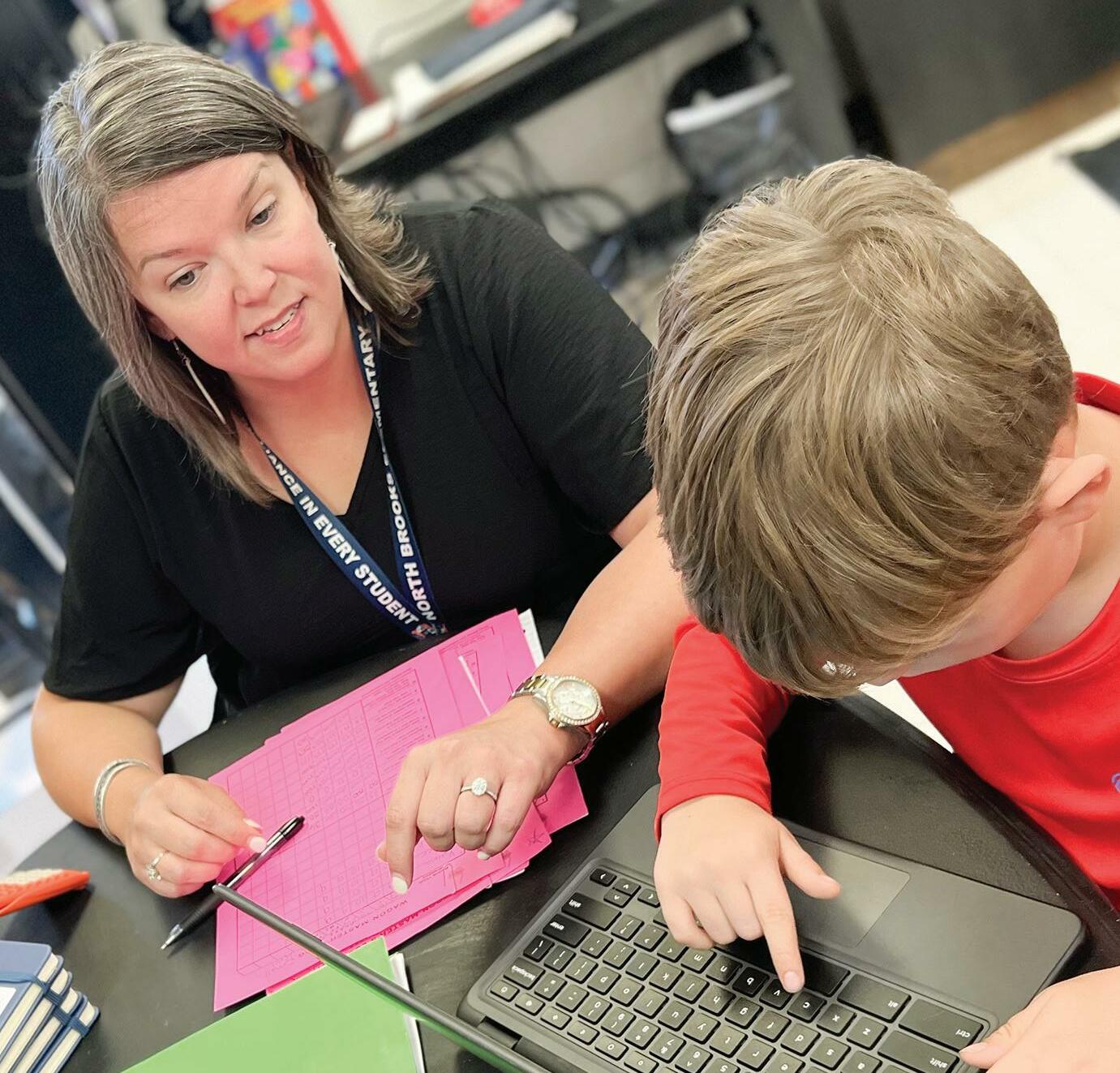
As the gifted coordinator at North Brooks Elementary, she helps teachers with gifted services and differentiation. In Brooks County, a formal mentoring program matches new teachers with a mentor for their first year. Though Simpson doesn’t have an official mentee this year, she actively mentors several teachers at her school around how to serve their gifted students better.
As a new teacher in 2006, Simpson remembers her own mentor, Rosa Williams.
Williams, who taught first grade at the time, supervised Simpson as a student teacher and then mentored her when she was teaching kindergarten. Though Williams has since passed away, Simpson still remembers her lasting impact.
“I remember my first few years teaching. I felt like I was failing and I didn’t know if I was able to do the job I want-
ed to do so badly,” says Simpson. “Rosa let me know it was okay to struggle and that you have to give it time. She was my marigold. She had a positive attitude and was always smiling and happy. When I really needed help learning something, I was never afraid to approach her.”
There have been many times when — even as a seasoned teacher — Simpson acknowledges that she has learned something from the new teachers she mentored.
“One of the greatest things is to watch teachers build confidence and find their place. It’s very satisfying,” she says. “And, I learn something new every day. New teachers are fresh and full of ideas.”
Simpson says she relies on her friend and mentor, Angie Tillman, the gifted coordinator at her sister school, Quitman Elementary. The two meet often to discuss what is going on in the gifted community.
“She’s my mentor right now,” says Simpson. “I’m on both sides. I help who I can here and then always have someone I can call who can help me.”
Candace Simpson, gifted coordinator at North Brooks Elementary in Brooks County, works with a student.“One of the greatest things is to watch teachers build confidence and find their place. It’s very satisfying. And, I learn something new every day.”
— Candace Simpson
• $1 million liability coverage
• $10,000 coverage policy for legal defense of employment, criminal, and ethics cases with the Georgia Professional Standards Commission
• All coverage is “win or lose” with no reimbursements, deductibles, or up-front costs.
• Direct access to one-on-one, privileged, and confidential guidance from an expert legal team with more than 75 years combined education and labor law experience
• Interactive Code of Ethics presentations, FAQs, and informative resources
• See page 52 for this month’s legal column.
• Your voice at the Capitol — and with policymakers at the local, state, and national level
• PAGE engages lawmakers on a variety of issues that affect educators and students throughout the year and especially during each session of the Georgia General Assembly.
• Advocacy focus areas include salary increases and pay supplements, school funding, teacher evaluation, assessment and accountability, the Teachers Retirement System, and preventing the expansion of private school vouchers.

• Growth-focused professional learning opportunities throughout the state.
• Grants to support your classroom and growth as a Georgia educator. PAGE Educator Grants have assisted more than 500 members to date. $100,000 to be awarded this year. Apply by Jan. 29 at https://www.pageinc.org/2023-educator-grant/

• Scholarships to support your continuing education and career goals. More than $600,000 awarded since program inception. Learn more about the impact of PAGE scholarships on pages 14-21. Visit www.pageinc.org/scholarships to learn more and apply.
• Teacher and student recognition programs and academic competitions: STAR, Academic Decathlon, and more
• Future Georgia Educators initiatives support Georgia’s teacher pipeline.

• PAGE One magazine, annual New Teacher Guide, educator resource materials, and more to keep you informed
• More benefits than any other Georgia educator association

• Your best value:
— Less than $15 monthly for certified personnel
— Less than $8 monthly for support staff
• Dues support you — not political action committees; local, state, or national candidates; national organizations; or non-education issues
• Dues stay in Georgia to work for you.
• Turn to page 13 to locate contact information for the PAGE representative in your area.
PAGE is the nation’s largest independent educator association with members serving in every Georgia school district and the best option for your professional future. Membership is available to all Georgia educators and school employees as well as college and high school students enrolled in education courses. Learn more at www.pageinc.org.
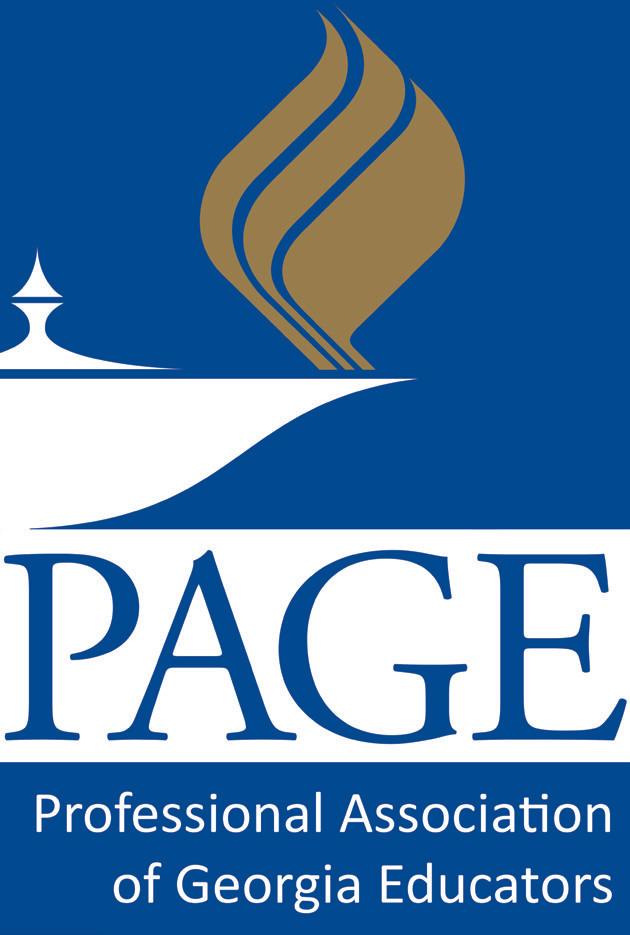
Emmanuel College is a private Christian College that delivers high value at low cost. The online program is now accepting applications for 2023.
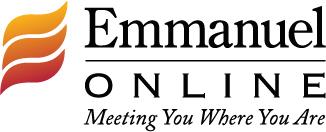
With three options for start dates during the year, you can begin the program when the time is right for you; it is designed for busy educators. Your degree can be completed in a year, or you can spread it over two years.
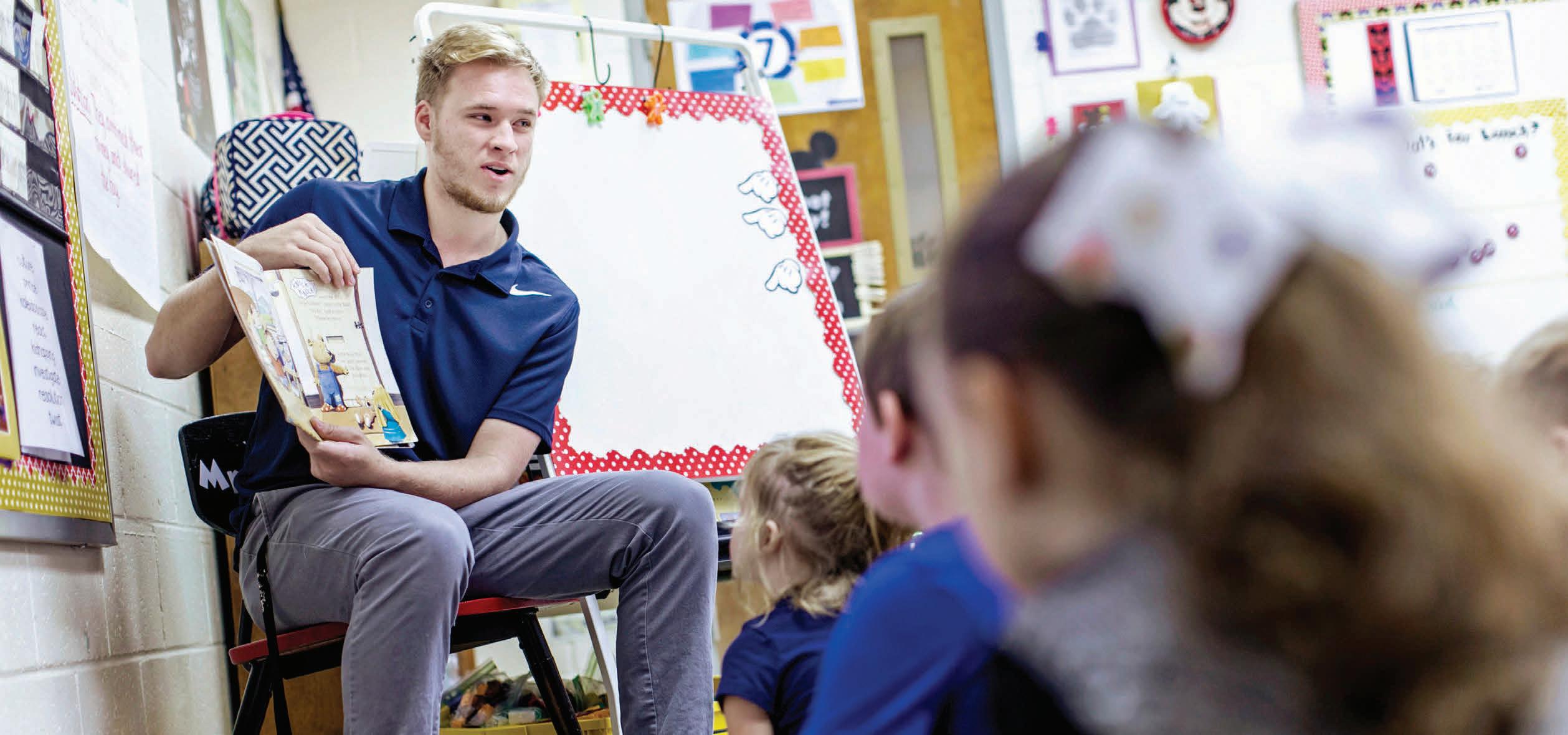

Shine brighter than ever this year with a graduate degree that leads to new career opportunities and a possible salary increase!
For more information, visit online.ec.edu
Bachelor
Master of Arts (MA)






















Master

Education
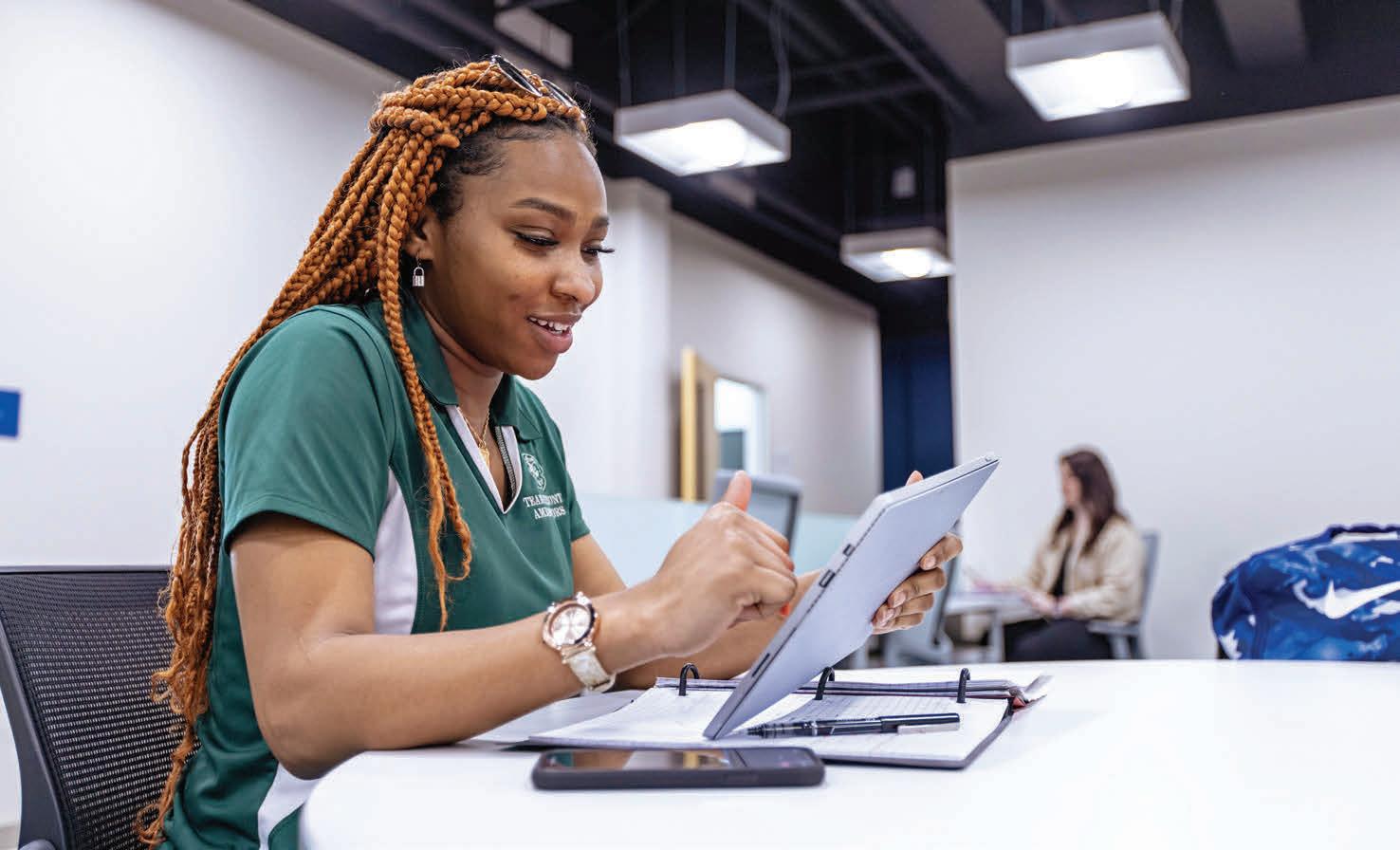
Doctor

































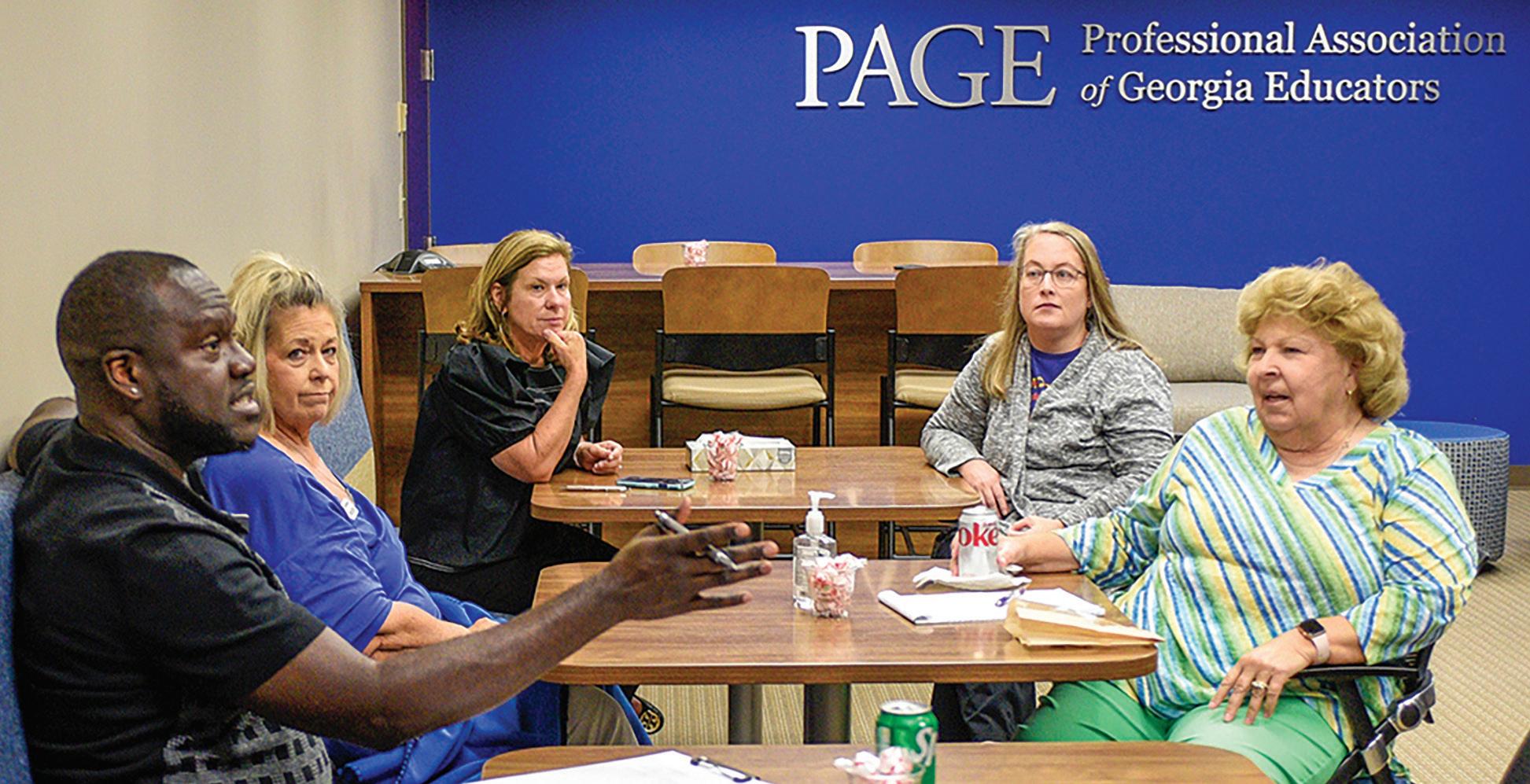
The Legislative Advisory Committee (LAC) consists of members representing each of PAGE’s 15 membership districts. The LAC also includes legacy members who have consistently demonstrated a commitment to the work of the committee. The LAC meets annually at the PAGE office in early September to develop PAGE’s legislative priorities for the upcoming legislative session. Committee members also serve as subject-matter experts for the legislative department throughout the year — especially during the Georgia legislative session that typically runs from the second Monday in January to early/mid-April.
As part of a recent redesign of the committee, formerly known as the Legislative Task Force, members now have an opportunity for enhanced participation in the organization’s interaction with policymakers. In addition to in-person engagement with legislators during the annual PAGE Day on Capitol Hill, LAC members now have the option to attend virtual meetings with lawmakers, state education agency representatives, and other special guests throughout the year.
We encourage LAC members and all PAGE members to develop relationships with their state House member
and their state Senator. These relationships are vital to the success of PAGE’s efforts under the Gold Dome as policymakers rely on educators — the experts — for information on education policies that shape Georgia public schools.
Members interested in serving on the LAC and contributing to PAGE’s state legislative efforts should contact Josh Stephens at jstephens@pageinc.org to request an application. As seats on the committee become available, the PAGE legislative team will contact applicants to schedule a virtual interview. Those selected to join the committee, serve at least one two-year term with an option to return for a second two-year term. All members of the committee attend the early September meeting at the PAGE office in Atlanta. It is during this meeting that the next legislative session’s priorities are developed. For those who must travel more than 60 miles to attend the meeting, PAGE will reimburse travel expenses and provide hotel rooms.
The member-developed PAGE legislative priorities for the 2023 session of the Georgia General Assembly appear on pages 46 through 48.
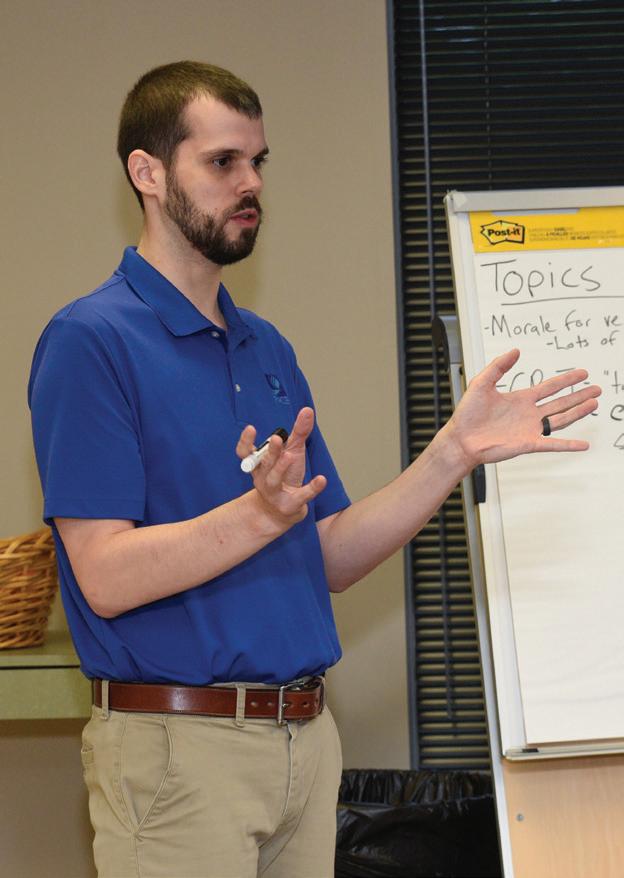
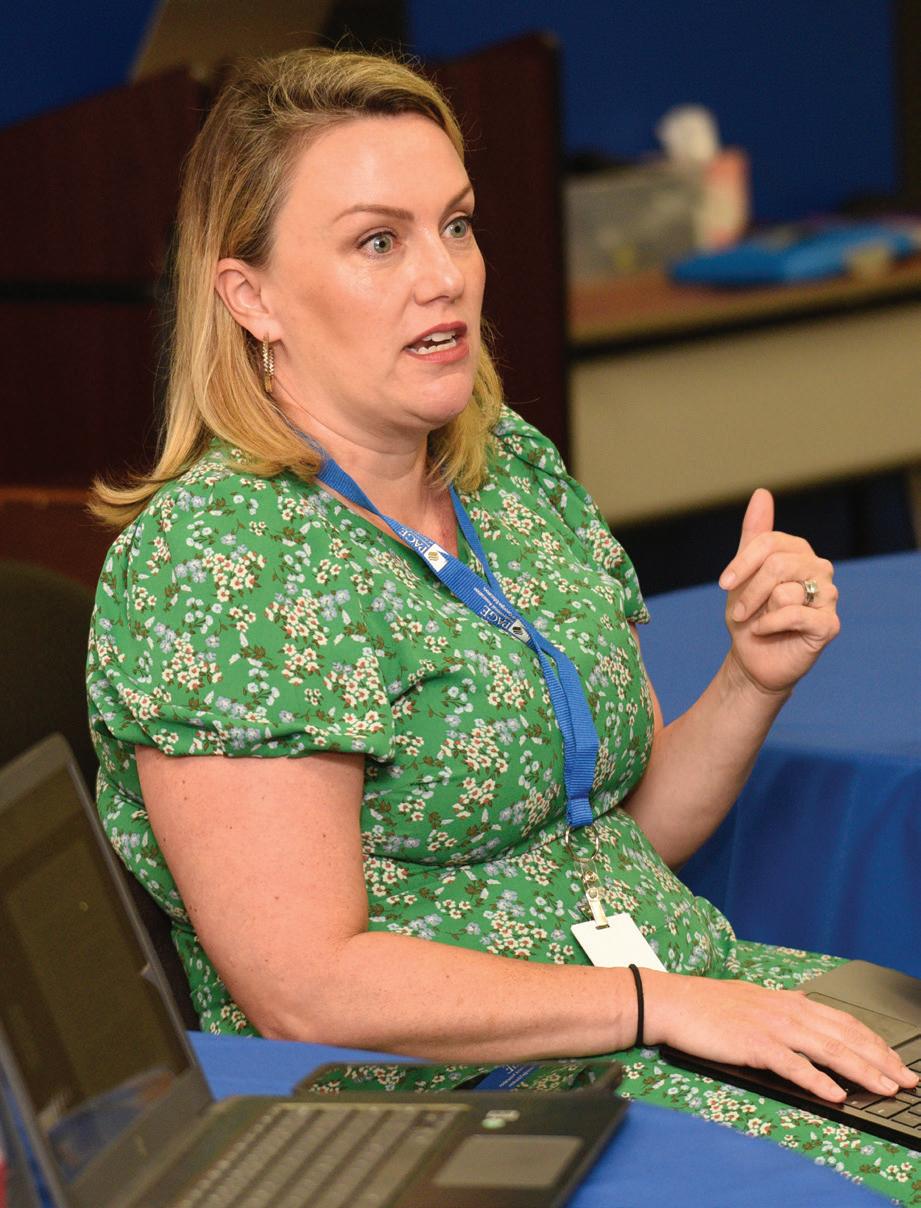
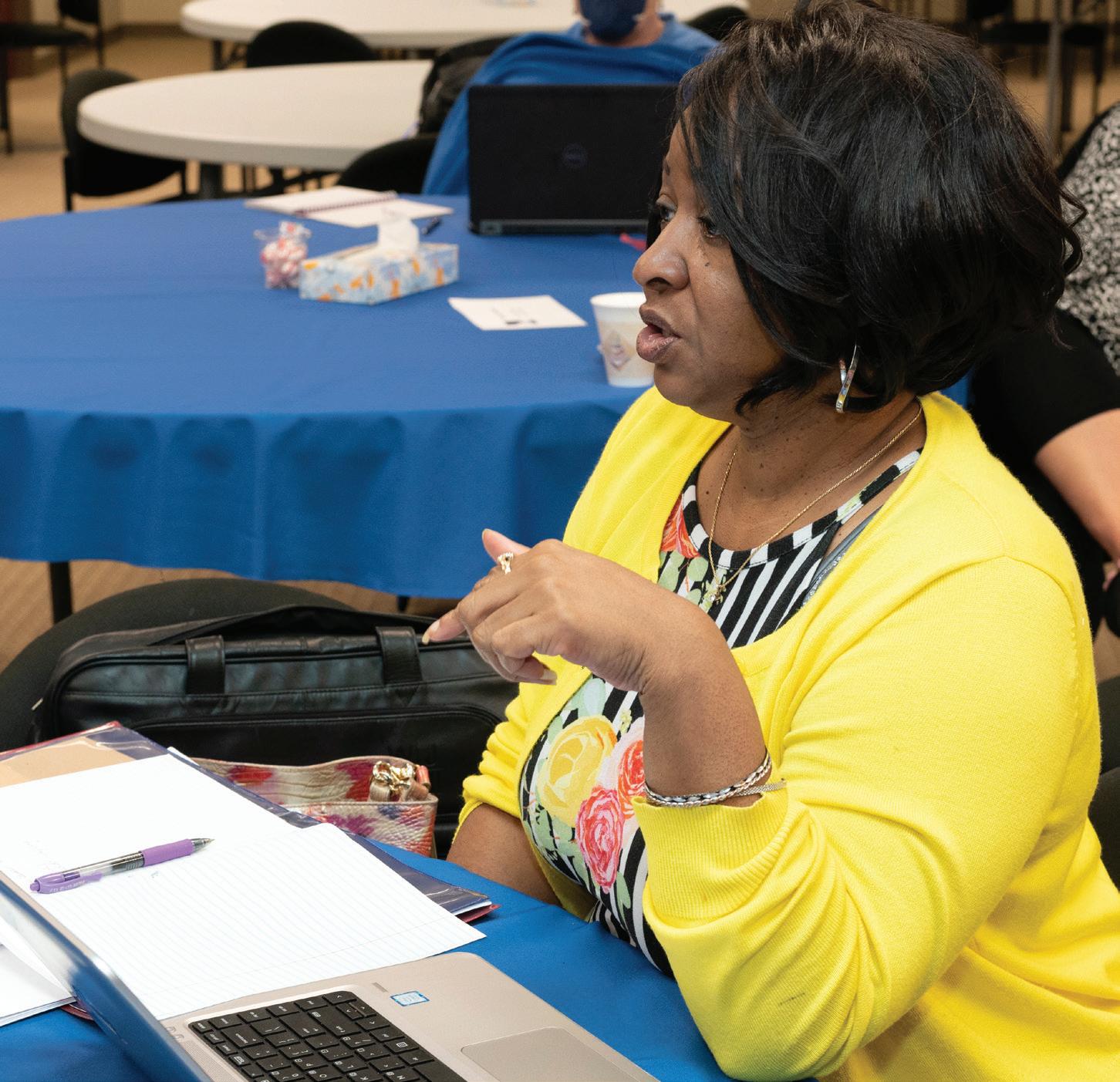


PAGE Legislative Priorities are created and approved by members every year. While the priorities reflect areas of PAGE advocacy focus during the legislative session for which they are generated, PAGE also strongly supports and

continuously advocates for policies benefitting educators, students, and public education, including raising educator salaries and promoting strong retirement and healthcare benefits for Georgia educators.
Protect educator planning time and reduce class size to enhance instruction and improve student learning.
Educators need time to design engaging and effective instructional plans for students. PAGE members across Georgia consistently identify lack of unencumbered planning time, free from meetings, as a significant barrier to providing high quality instruction. Lack of planning time is also a reason teachers leave the profession,1 and
it undermines the successful implementation of interventions to improve student learning.2 PAGE members also highlight large class sizes as detrimental to student learning. Small class size in primary grades is linked to improved achievement, particularly among low-income and minority students.3
• Funding school counselors for special education and gifted students as statutorily required.
In 2013, the General Assembly passed HB 283, which aimed to boost funding for school counselors. The legislation laid out a timeline to provide funding for school counselors for special education, gifted, remedial, and ESOL students—none of whom were provided funds for counselors at that time—and set a ratio of one counselor per 450 students for all student categories under the Quality Basic Education formula.

In FY 2018, legislators allocated funds for school counselors for ESOL4 and remedial students, but they have not yet invested in school counselors for special education or gifted students. Lawmakers should ensure funds for school counselors are allocated to these students in the FY 2024 budget.
• Enhancing school safety by incorporating funding as
an annual supplemental grant to the Quality Basic Education (QBE) formula.
Safety measures in public schools are an ongoing and increasing concern. While the state has made periodic investments to help make schools safer, there is no line item in the budget to make this a consistent priority. Legislators should incorporate an annual allocation in the state budget beginning in FY 2024.
• Expanding the mental health workforce in high-need areas by increasing investment in their training.
Forty-five counties in Georgia do not have either a licensed psychologist or a licensed social worker,5 and 152 of the state’s 159 counties face a county-wide shortage of mental health workers.6 Lawmakers should grow the mental health workforce by including mental health professionals in Georgia’s existing service cancellable loan programs for healthcare workers.
State funding to transport students to and from school safely has not kept pace with districts’ transportation costs. State dollars currently cover only about 15 percent of these costs, down from approximately 50 percent in the 1990s. This shift adds significant costs to local budgets and limits the amount of local dollars that can be directed to the classroom.
Lawmakers examined student transportation funding in 2000 and 2012 and laid out recommendations to increase the state’s contribution, which have not been implemented. Guided by these recommendations, legislators should develop and enact a plan to bring funding back to a partnership level beginning with an increase in the FY 2024 budget.
Boost state funding for student transportation to enable districts to increase local funds allocated to teaching and learning.
Georgia faces persistent teacher shortages in special education, math, and science. School districts in many rural communities also struggle to attract and keep educators. To reduce the financial burden of earning a degree and initial certification to teach, the General Assembly should restore service cancellable loan programs it eliminated:
• Promise Scholarship for college juniors and seniors going into teaching
• Teacher Scholarship for individuals pursuing advanced degrees in critical shortage areas such as math and science
• Promise II Scholarship for paraprofessionals seeking to complete their degrees and earn certification
Students across Georgia experienced multiple learning disruptions since March 2020. Districts are using federal pandemic relief funds to meet immediate health and safety needs and address student academic and non-academic concerns.
The impact of the pandemic on student learning is uneven with some students experiencing large declines in expected academic progress, particularly low-income students, while others experienced smaller decreases.7 Effectively addressing the pandemic’s negative effects on students will require extra support beyond the timeframe of federal relief dollars, which expire in
September 2024.8 Incorporating additional funds for low-income students in the QBE formula will allow districts to sustain practices that are accelerating student learning.
To support effective deployment of these funds, lawmakers should invest in an education research collaborative that leverages the capacity of the university system to undertake rigorous examinations of critical education practice and policy concerns. Priority focus areas could include literacy development practices and the educator workforce, which have emerged as key issues in the pandemic’s wake.
1 Provasnik, S. & Dorfman, S. (2005) Mobility in the teacher workforce (NCES 2005-114). Washington, DC: U.S. Department of Education, National Center for Education Statistics. https://nces.ed.gov/ pubs2005/2005114.pdf
2 McGoey, K.E., Rispoli, K.M., Venesky, L. G., Schaffner, K.F., McGuirk, L., & Marshall, S. (2014) A preliminary investigation into teacher perceptions of the barriers to behavior intervention implementation, Journal of Applied School Psychology, (30)4, 375-390
3 Krasnoff, B. (2015) What the research says about class size, professional devel-
opment, and recruitment, induction, and retention of highly qualified teachers: A compendium of evidence on Title II, Part A, program-funded strategies. Portland, OR: Northwest Comprehension Center. https://files.eric.ed.gov/fulltext/ED558138. pdf
4 ESOL refers to English to Speakers of Other Languages
5 Voices for Georgia’s Children. (2021) Sustaining Georgia’s child and adolescent behavioral health workforce through supervision. Atlanta, GA: Same. https:// georgiavoices.org/wp-content/uploads/2021/03/BHWF-Brief-FINAL.pdf

6 Health professional shortage areas: Mental health, by county, 2022-Georgia (n.d.).Rural Health Information Hub. https://www. ruralhealthinfo.org/charts/7?state=GA
7 Sass, T. R. & Goldring, T. (2022). Student achievement during the COVID-19 pandemic. Georgia Policy Labs, Georgia State University. https://gpl.gsu.edu/publications/ student-achievement-growth-during-thecovid-19-pandemic-fall-2021-update/
8 Shores, K. & Steinberg, M.P. (2022). Fiscal federalism and K-12 education funding: Policy lessons from two educational crises, Educational Researcher. doi. org/10.3102/0013189X221125764
Reduce barriers to entering the teaching profession by restoring the Promise Scholarship and the Teacher Scholarship programs and the Promise II Scholarship program.
Sustain student recovery from pandemic-driven learning disruptions by investing in funding for low-income students in the Quality Basic Education formula.
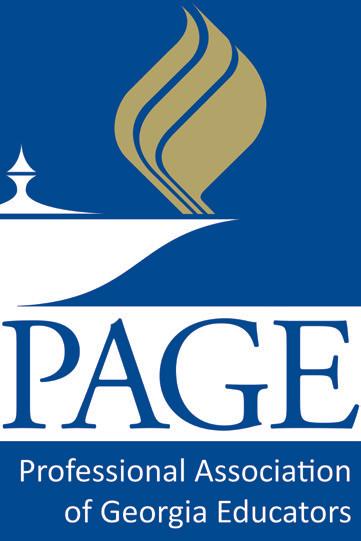
Georgia educators need information about and access to the General Assembly. The PAGE legislative team connects you.
Make plans today to join us:
State Education Budget Overview Webinar
When: Jan. 25, 2023, 5 p.m.
What: Discussion of education-related funding proposed in the Amended Fiscal Year 2023 and Fiscal Year 2024 budgets, including Quality Basic Education funding, educator salaries, and appropriation for the Teachers Retirement System of Georgia.
2023 PAGE Day on the Hill
When: Feb. 21, 2023, 8 a.m. to 1 p.m. at the State Capitol
What: Information sessions on pressing education issues under the Gold Dome. Guest speakers include state policymakers. PAGE member advocacy opportunities.
Watch the email address associated with your PAGE membership for registration details. To ensure you’re signed up to receive PAGE legislative reports and event invitations, visit www.pageinc.org, click on the legislative tab, and subscribe to the PAGE Capitol Report. Or visit us directly at www.pagelegislative.org where you can also access archived reports and resources, including the 2023 General Assembly Preview webinar held earlier this month.

The PAGE legislative team develops, communicates about and advocates for policies that support Georgia educators and enable them to thrive professionally. The team’s core focus is on state policy, but it also works on federal issues. The team’s most visible work happens during the legislative session, but its members advocate on behalf of PAGE members yearround.
Perennial education policy topics which guide PAGE advocacy efforts include teacher pay, school funding, teacher evaluation, assessment and accountability, protecting the Teachers Retirement System, preventing the expansion of existing private school voucher programs, and stopping the creation of new private school voucher programs. Topics such as teacher burnout, recruitment and retention, and COVID-19 learning recovery have also emerged as major education policy issues in recent years.
In addition to these policy areas, members of the PAGE Legislative
Advisory Committee work with PAGE staff to identify specific issues that require legislative action during a particular year as highlighted in the PAGE Legislative Priorities (see more on pages 46-48).
Each session of the Georgia General Assembly, the PAGE legislative team advocates by:

• Engaging lawmakers: Communicates with policymakers to raise awareness of issues that matter to educators and students.
• Developing and disseminating policy resources: Creates informational resources on relevant policy items including issue briefs, research, survey reports, and bill analyses. The team also conducts webinars and other events throughout the year to inform members on important policy topics.
• Monitoring the policy landscape: Tracks policy development at the
state and federal levels to identify changes that may affect educators and students.
• Collaborating with partners: Communicates and often works collaboratively with other organizations that advocate for public education, including the Georgia Association of Educational Leaders (GAEL), the Georgia School Superintendents Association (GSSA), the Georgia School Boards Association (GSBA), and the Georgia Association of Colleges for Teacher Education (GACTE).
• Supporting member advocacy: Organizes PAGE Day on the Hill to provide members an opportunity to engage their representatives directly on key education issues.
The team is also available to assist with connecting members with their legislators outside of the legislative session.
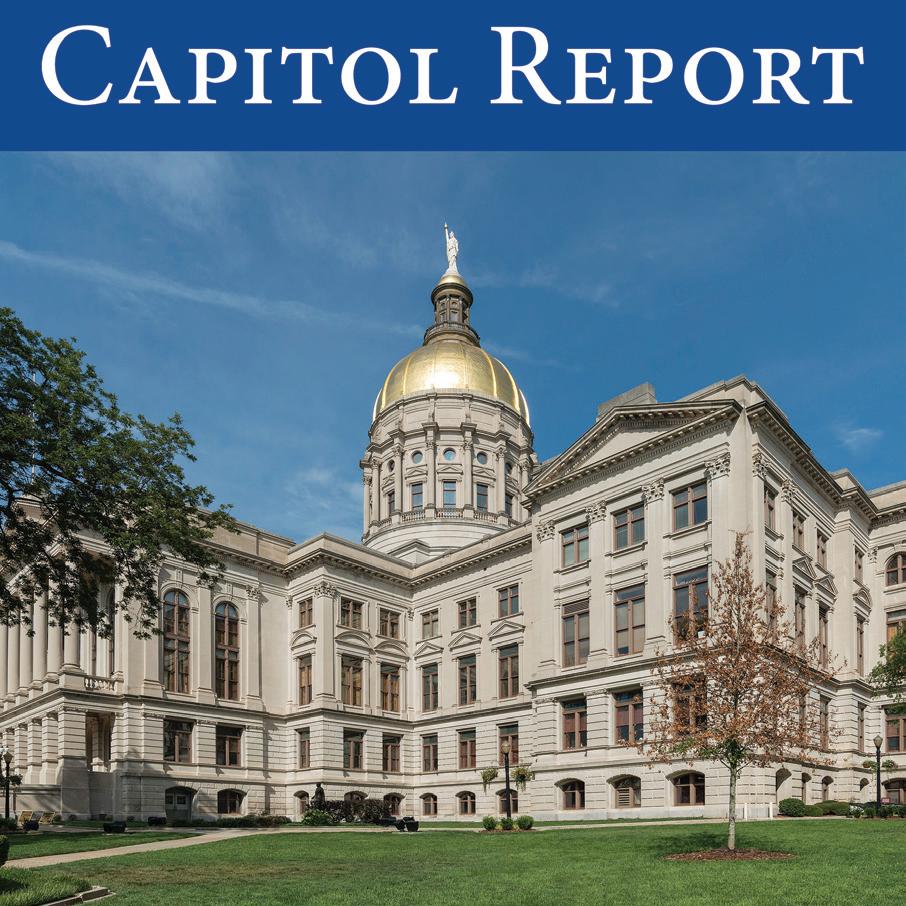
Margaret Ciccarelli is the PAGE director of legislative services. A longtime PAGE employee, Margaret has worked in a variety of legal, legislative, advocacy, and communications roles at PAGE. The daughter of a lifelong professional educator, Margaret grew up and attended public schools in Statesboro, Georgia, before attending the University of Georgia and, later, Mercer Law School. She, her husband, and their three children live in Decatur.
Josh Stephens Legislative Services Specialist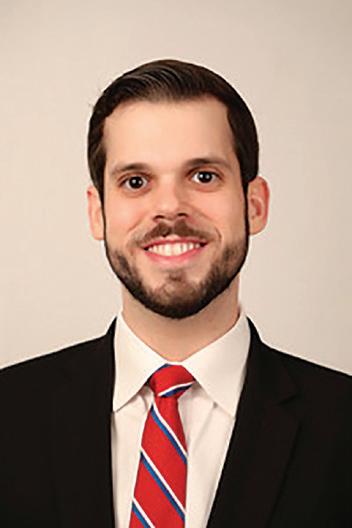
jstephens@pageinc.org
Josh Stephens is the legislative services specialist at PAGE and has worked at the organization since 2012. He grew up in Madison, Georgia, where his mother served for many years on the Morgan County Board of Education. Josh earned his undergraduate degree from the former Augusta State University (now Augusta University) before moving to Atlanta to earn his Master of Public Policy degree from Georgia State University. He and his wife, Graci, recently bought their first home in Covington, Georgia.
Claire Suggs Senior Education Policy Analyst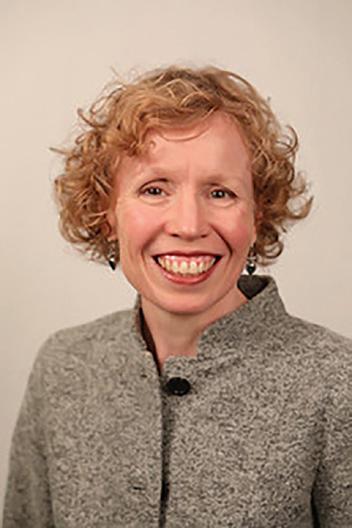
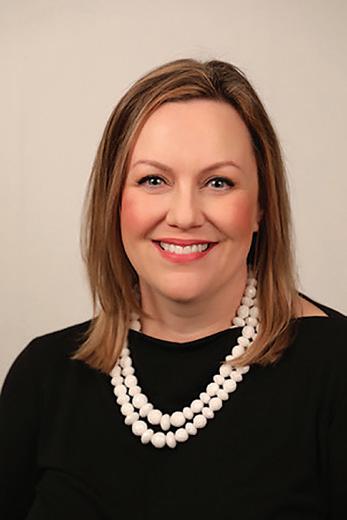
csuggs@pageinc.org
Claire Suggs is the senior education policy analyst at PAGE. She has extensive experience in the policy sector including designing and leading initiatives to increase funding for public schools in Georgia, developing research analyses and advocacy strategies to expand postsecondary opportunities in southern states, and designing and conducting research to support and evaluate district reform efforts. Claire earned undergraduate and graduate degrees from the University of Michigan and the University of Wisconsin. She lives in Athens with her husband and two children.

Gifts are a wonderful way for students to express appreciation for teachers, and for educators to express appreciation for students and colleagues. When giving or receiving gifts in a professional setting, however, Georgia educators must be mindful that such activity is governed by the Code of Ethics for Georgia Educators (COE). Sometimes, accepting a gift from a student or colleague can create ethical dilemmas. This article seeks to assist educators in avoiding those dilemmas.
In the following, we examine three gift scenarios: gifts from student to teacher; gifts from teacher to student; and gifts from educator to educator.
Students often present gifts to teachers at holidays, birthdays, or the end of the school year. Standard Six of the COE mandates that educators “shall maintain integrity with students…when accepting gifts.” The purpose of this rule is to protect the educator and the profession from conflicts of interest. The central component of whether an educator’s integrity could be called into question by accepting the gift is its monetary value. Here, the educator should consult local board of education policies to determine if the employing school system has established rules for acceptable value. If district policy is silent on this point, a general rule is that gifts valued under $50 will not call into question an educator’s integrity. For example, items such as coffee cups, markers, candy, and handmade gifts are generally less than $50. Those gifts — so long as they are professionally appropriate — may be accepted carte blanche.
Whenever an educator receives a gift that she/he believes may be valued in excess of the acceptable amount, the educator may keep it with written approval of either the building principal or the superintendent. In this scenario, the educator must write to his/her immediate supervisor with full disclosure of the gift, the student who gave it,
its estimated value, and a request to keep it. When the supervisor’s response is given, the duty falls on the educator to follow that directive, which could include returning the gift. In cases where an educator accepts a gift that is above the amount allowed, that educator runs the risk of being disciplined by the school system for insubordination and sanctioned for unethical behavior by the Georgia Professional Standards Commission (GaPSC).
Sometimes, students bring inappropriate gifts, such as alcohol, to school to give to their teachers. When an educator receives a gift of alcohol from a student, the appropriate response is to keep it secure and notify a building-level administrator immediately, requesting a directive as to how to proceed. Once the directive arrives, it is essential that the educator follow the directive. Under no circumstances should the alcohol be returned to the child.
When receiving a gift card to a grocery store, big box store, or online retailer, the most prudent course of action is for the educator to assume that the gift is for the classroom rather than him/her personally. Spend it on supplies, keep a copy of the receipt, and write the student/parent a thank you note on behalf of the class.
Educators also give students and families gifts. Here, educators should proceed professionally. First, gifts from teachers to students should never be costly. Second, a gift to one should be a gift to all. For example, if an educator gives a gift to a student for their birthday, then he/she should also give the same birthday gift to every student, including those who have birthdays over holiday

“When giving or receiving gifts in a professional setting ... Georgia educators must be mindful that such activity is governed by the Code of Ethics for Georgia Educators.”
breaks or summer break. This negates accusations that the educator plays favorites or singles out select students for better treatment. Third, the gift should always be age appropriate for the child and never adult-oriented.
There are times when individual students find themselves in extraordinary circumstances (like a serious health impairment) and the teacher feels a need to give that student a special gift. In these instances, it is best to give the gift privately to the parents.
Standard Six of the COE does not govern gifts between colleagues, so the general rule is that educators should maintain professionalism when exchanging gifts with one another. The issue that most often arises here is an educator brings an alcoholic beverage to school to gift to another educator. This is a violation of Standard Three of the COE and could result in a sanction under that standard. Educators should never bring alcohol to school, even to gift to a colleague. This exchange should be done privately and away from school.
Gifts are a wonderful way to show and receive caring and support from students, families, and colleagues. Educators should remember these best practices when dealing with gifts:
• If the gift is a gift of too much value, it should be returned if the school system does not give permission
for the educator to keep the gift.
• Educators should open their gifts privately. This keeps an audience of students from seeing an expensive or inappropriate gift. It also gives the educator increased latitude in addressing questionable gifts.
• Gifts should never be taken into context with regards to grades.
• An educator should never feel compelled to keep any gift. If he/she feels that it is inappropriate to accept a gift, for whatever reason, the best course of action is to give it back.
As a PAGE member, you have access to privileged and confidential legal guidance regarding any topic related to the teaching profession — including gift dilemmas. To speak with a PAGE attorney, call 770-216-8555 and choose option 1. You can also send an email to legal@pageinc.org.

Matthew Pence is a PAGE staff attorney. A former high school history teacher and graduate of Emory University School of Law, Matthew has served PAGE members for 10 years.
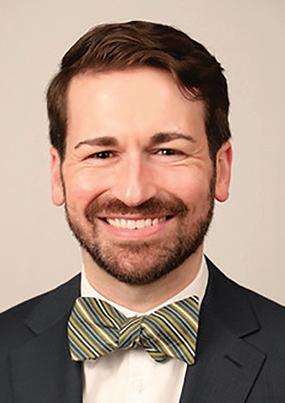
State Competition is scheduled for Feb. 24-25 at Kennesaw State University.
Super Quiz proctors are needed Friday evening. Speech and interview judges are needed Saturday morning. Visit https://bit.ly/3Guuvs6 for more information and to volunteer!
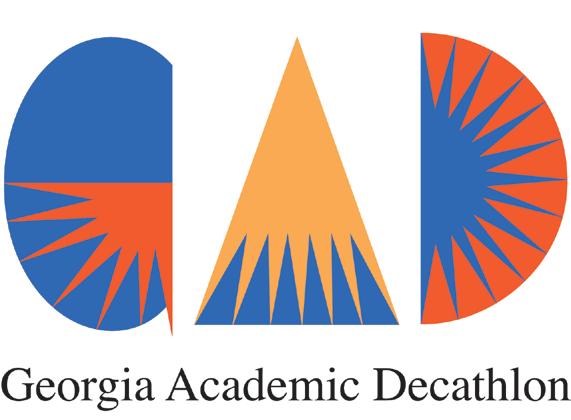
Keeping pace with your needs, PAGE has streamlined the system for joining, renewing, and updating your member profile. Visit https://members.pageinc.org or scan the QR code below to create an account and access this new, easy-to-use portal.
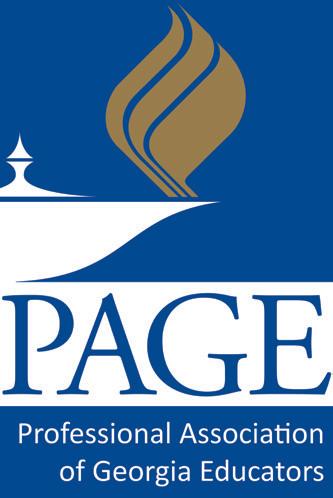
If you transfer from a school system where you are on payroll deduction, you’ll need to provide PAGE with this new information in order to maintain membership and prevent a lapse in coverage and benefits.

Review your contact information, updating if needed, to ensure accuracy. Providing a personal email rather than a work email address is preferred as some school system filters will prevent receipt of messages.
When transitioning from student to teacher, ensure continued coverage by also transitioning your membership to professional. And you’ll receive your first year at half price!
Visit https://members.pageinc.org or scan the QR code below to access the portal.
President
Khrista Henry Treasurer
Lamar Scott
Dr. Oatanisha Dawson District 1 Bivins Miller
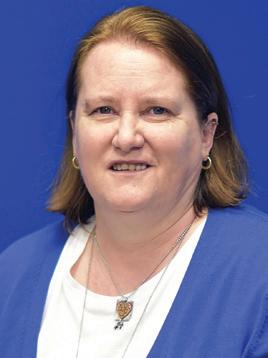

Dr. Susan Mullins
District 2
Dr. Brecca Pope District 3 Mary Case District 4 Rochelle Lofstrand District 5 Dr. Shannon Watkins District 6 To Be Filled District 7 Lance James
District 8 To Be Filled District 9 Jennie Persinger District 10 To Be Filled District 11 Amy Carter District 12 TaKera Harris District 13 Daerzio Harris
Vickie Hammond Dr. Sheryl Holmes
The PAGE Board of Directors is made up of five Officers (President, PresidentElect, Secretary, Treasurer, and Past President), 13 District Directors and two retired Georgia educators. A District Director must be an active member of the association and have his/her place of business and office in the district, which such member represents. Nominations for District Directors and Officers are made by a nominating committee after an interview process of those who have been recommended or expressed interest in serving. District Directors and Officers are then elected for a three-year term via the annual online business meeting of the Association by a majority vote of the members. The two retired Georgia educators who serve on the Board are appointed by the President and approved by the Board for a three-year term. To express interest or apply for a District Director position, please contact your MSR (information on page 13 of this issue and at https:// www.pageinc.org/contact-us-3/) or Dr. Hayward Cordy (hcordy@pageinc. org). Each year, there are four or five District Directors with expiring terms that are up for election.
Passionate about clear, engaging communications, Ramona is an alumna of UCLA who honed her craft in the film industry before founding a Georgia-based creative agency. An education policy fellow and former district II chair of the Georgia School Public Relations Association, Ramona led DeKalb County School District’s stakeholder engagement initiative – launching an awardwinning magazine and branding campaign. Ramona joined the PAGE Communications team in 2019.
Dolly brings to PAGE experience in the Atlanta news media, in higher education, and at several non-profits. An Agnes Scott College alumna and Leadership DeKalb graduate, she has garnered top awards for writing and photography from Georgia Press Association, Suburban Newspapers of America, Georgia PTA, and others. She is NW Metro Atlanta Habitat for Humanity’s photographer in her spare time.
To contact the PAGE One Team, email us at info@pageinc.org.
The articles and advertisements published in PAGE One represent the views of the contributors and do not necessarily represent the views of the Professional Association of Georgia Educators, except where clearly stated.
To submit a topic for consideration, visit https://bit.ly/3oh86DM
For advertising rates and opportunities, contact Sherry Gasaway of New South Publishing: 678-689-8303 or sherry@newsouthpublishing.net
Contributions/gifts to the PAGE Foundation are deductible as charitable contributions by federal law. Costs for PAGE advocacy on behalf of members are not deductible. PAGE estimates that seven percent of the nondeductible portion of dues is allocated to advocacy.
PAGE One (ISSN 1523-6188) ©copyright 2023 is mailed to all PAGE members, selected higher education units, and other school-related professionals. An annual subscription is included in PAGE membership dues. A subscription for others is $10 annually. Periodicals class nonprofit postage paid at Atlanta, GA, and additional mailing offices. (USPS 017-347) Postmaster: Send address changes to PAGE One, P.O. Box 942270, Atlanta, GA 31141–2270.
PAGE One is published four times a year by the Professional Association of Georgia Educators. ©Copyright 2023.
For more than 140 years, the University of North Georgia has been developing education leaders who are highly sought after for their skills and experience. Our innovative graduate degrees and endorsement programs help educators advance their education and their careers.
Elementary and Special Education
Middle Grades Education
Secondary Education in English, Mathematics, History, Biology, Chemistry, and Physics
P-12 Education in Art, Music, and Physical Education
Melissa Silva ‘19
UNG graduate and Fulbright scholar now teaching in Hall County Schools.
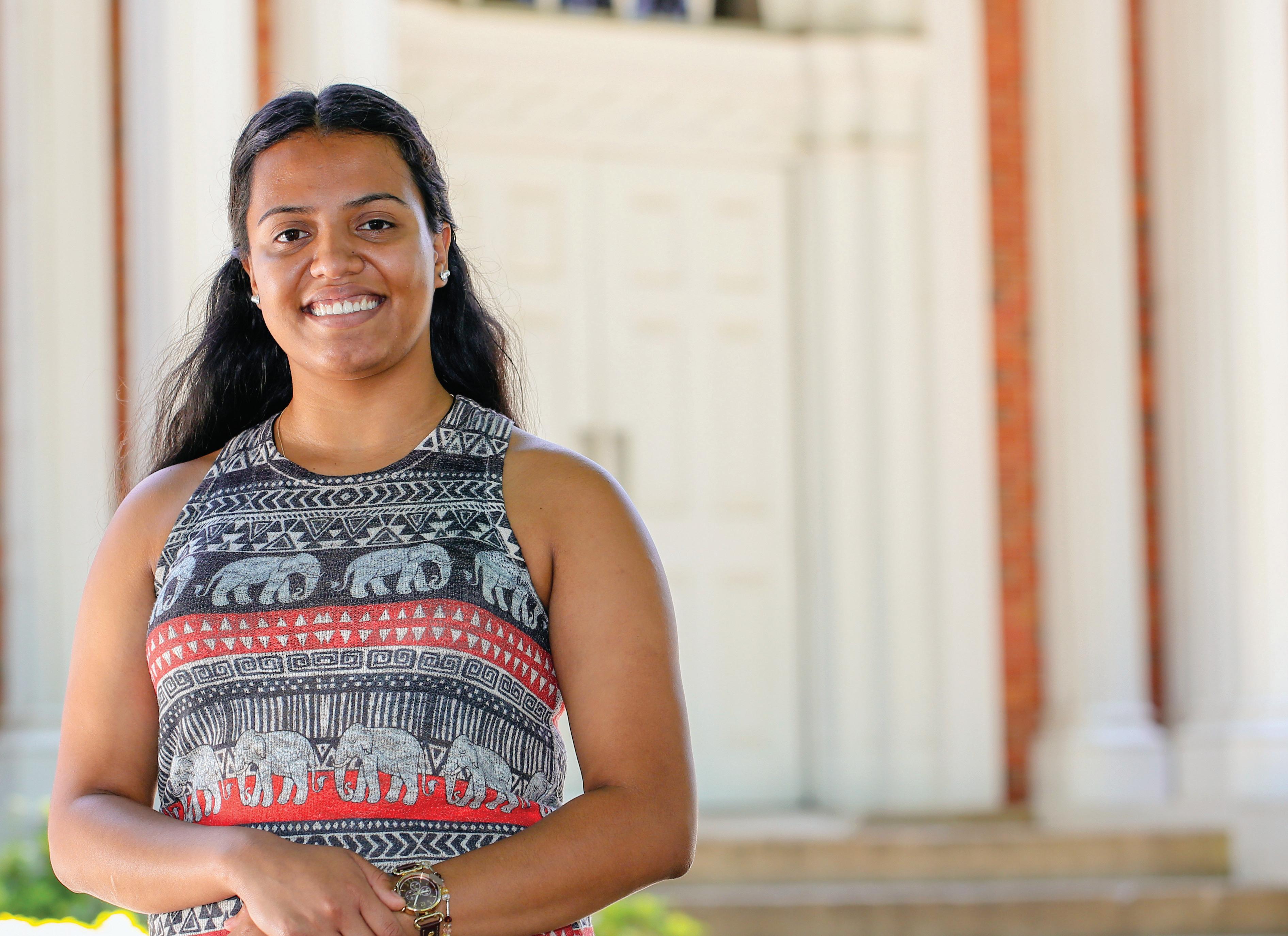
Post-Baccalaureate
Master of Arts in Teaching Initial Certification Program
Master of Education in Curriculum and Instruction
Master of Education in Middle Grades Mathematics and Science
Master of Education in Early Childhood Education
Tier I Educational Leadership Certification Program
Tier II Educational Leadership Educational Specialist Degree Program or Certification-Only Program
Educational
